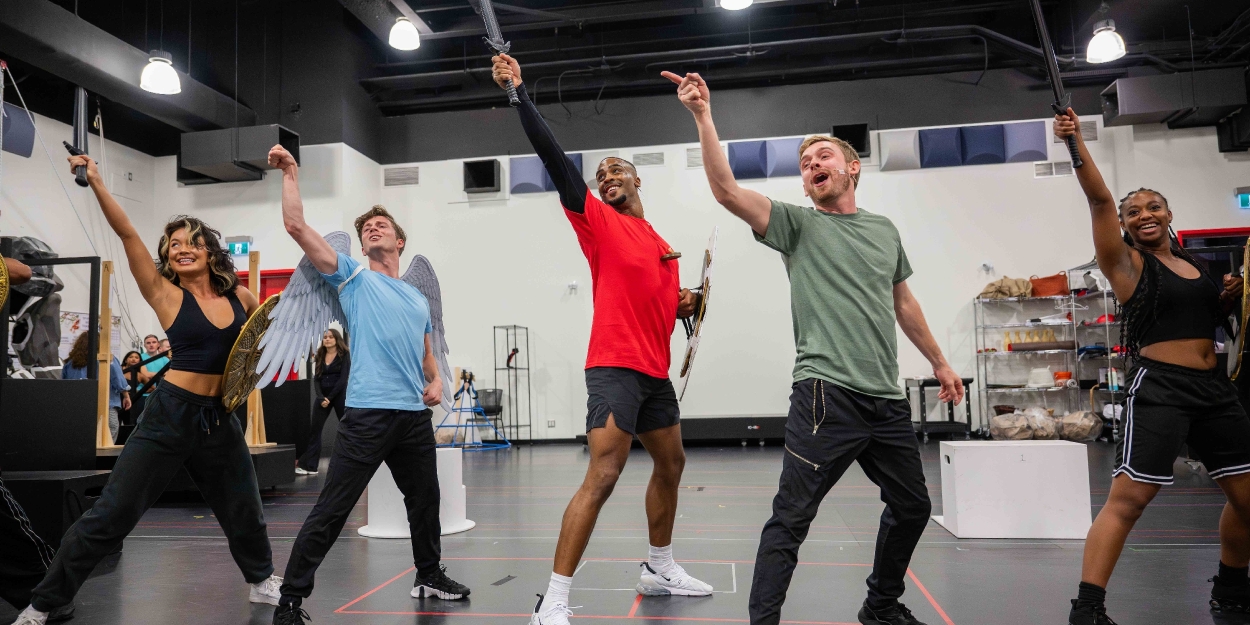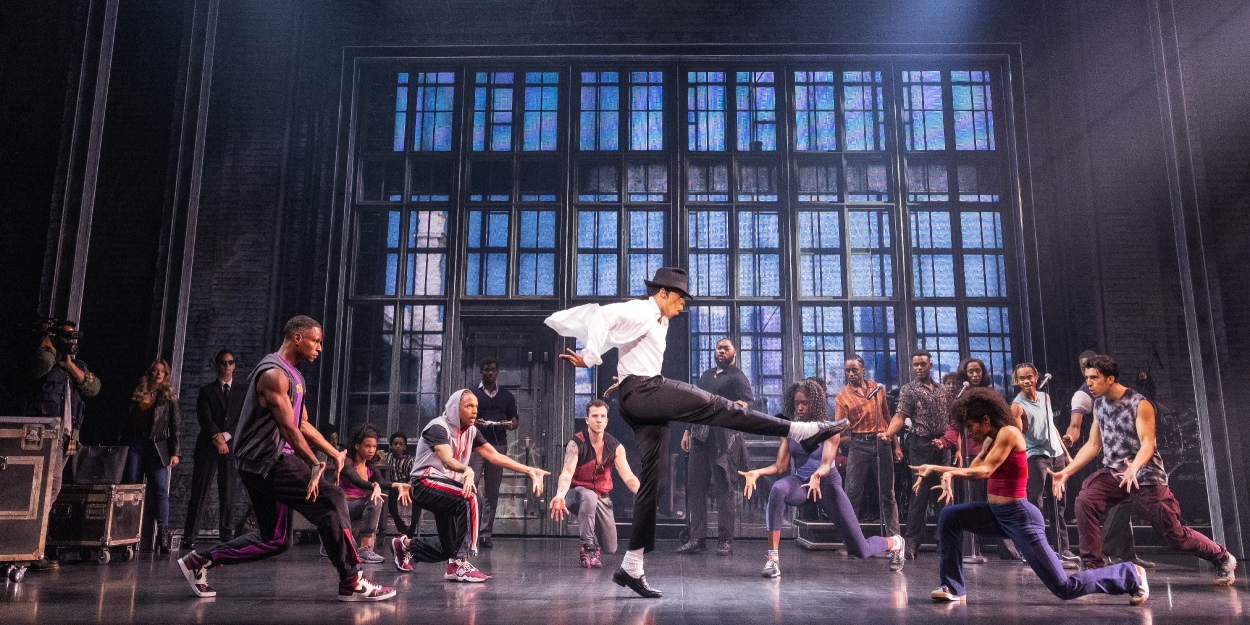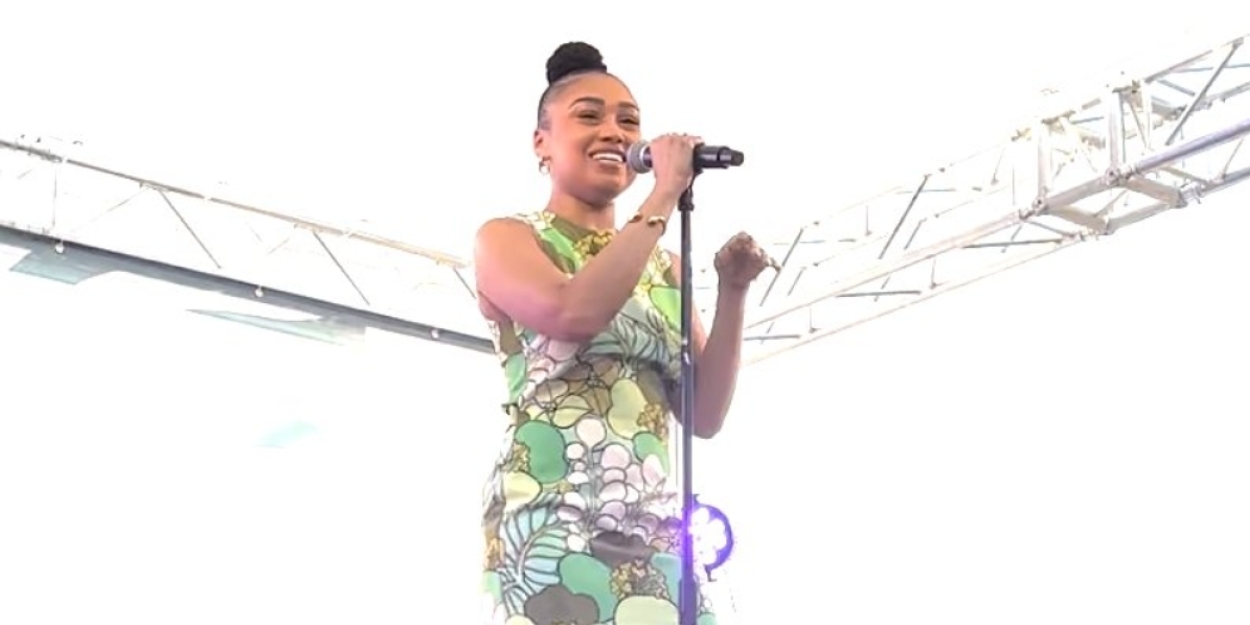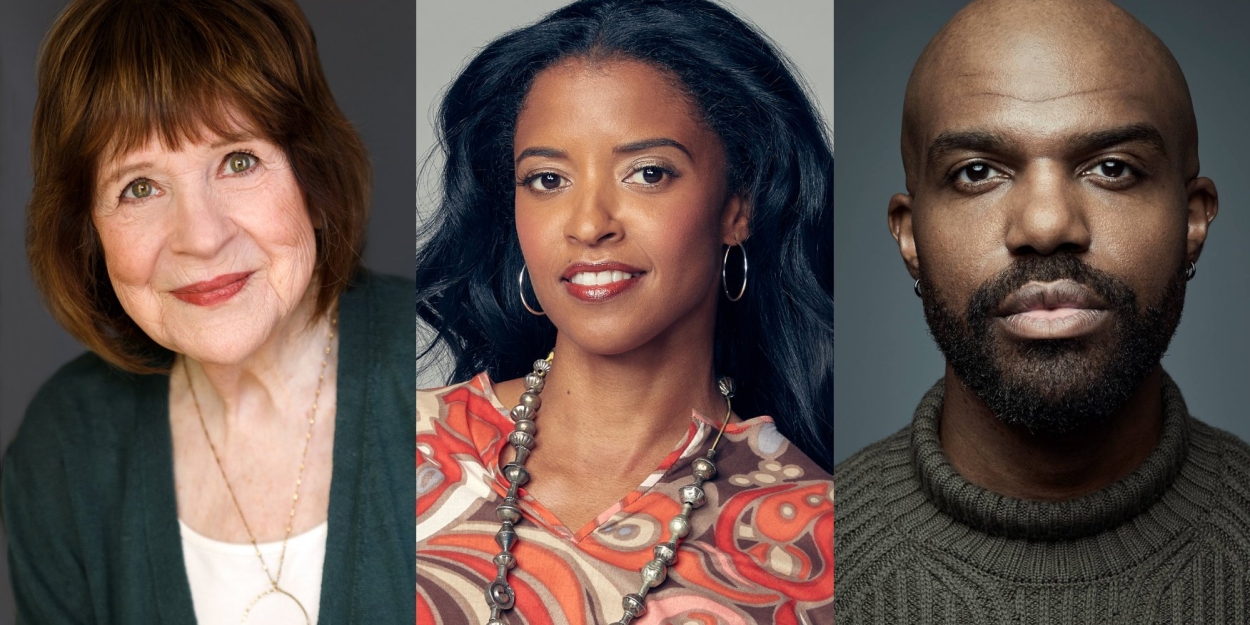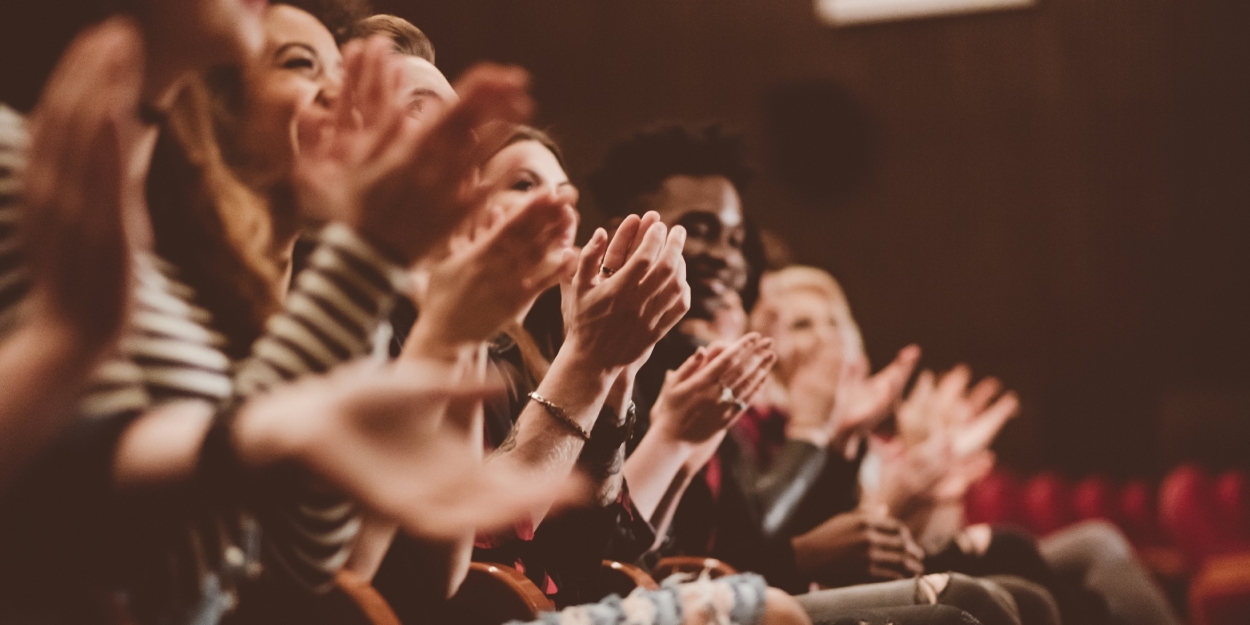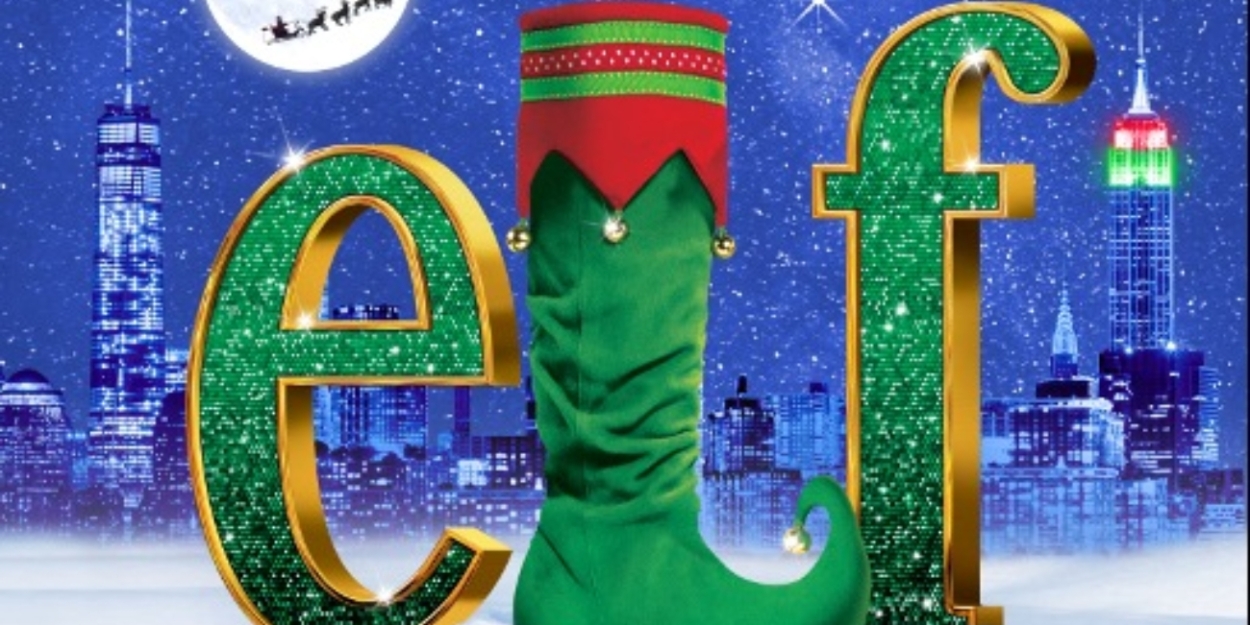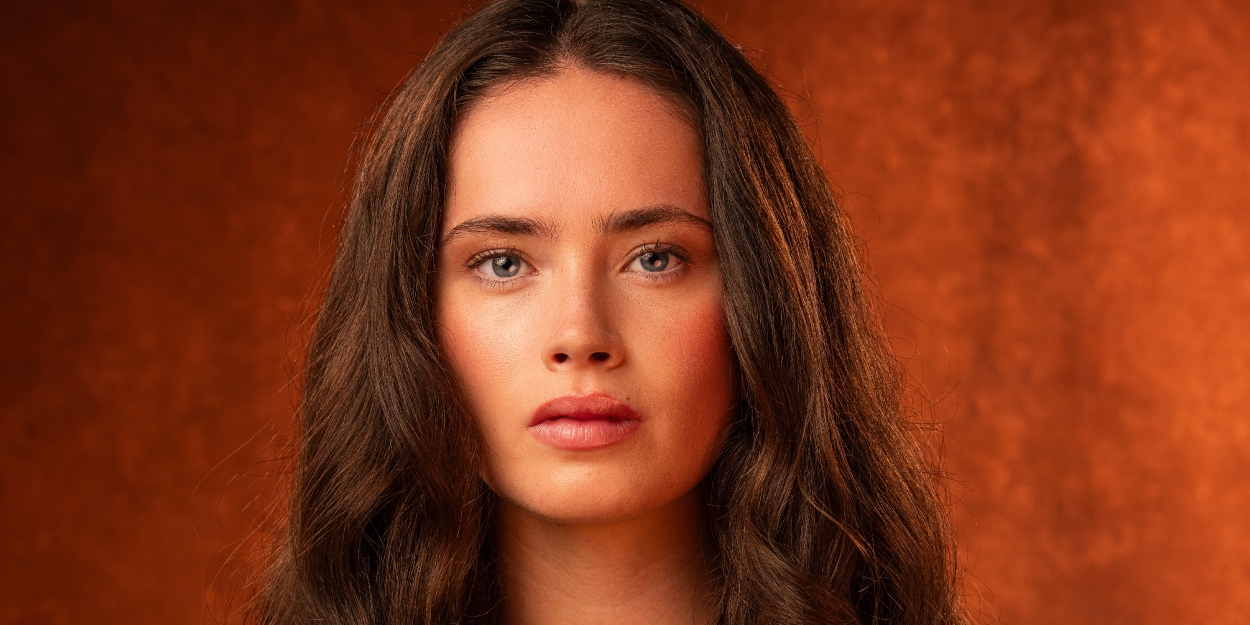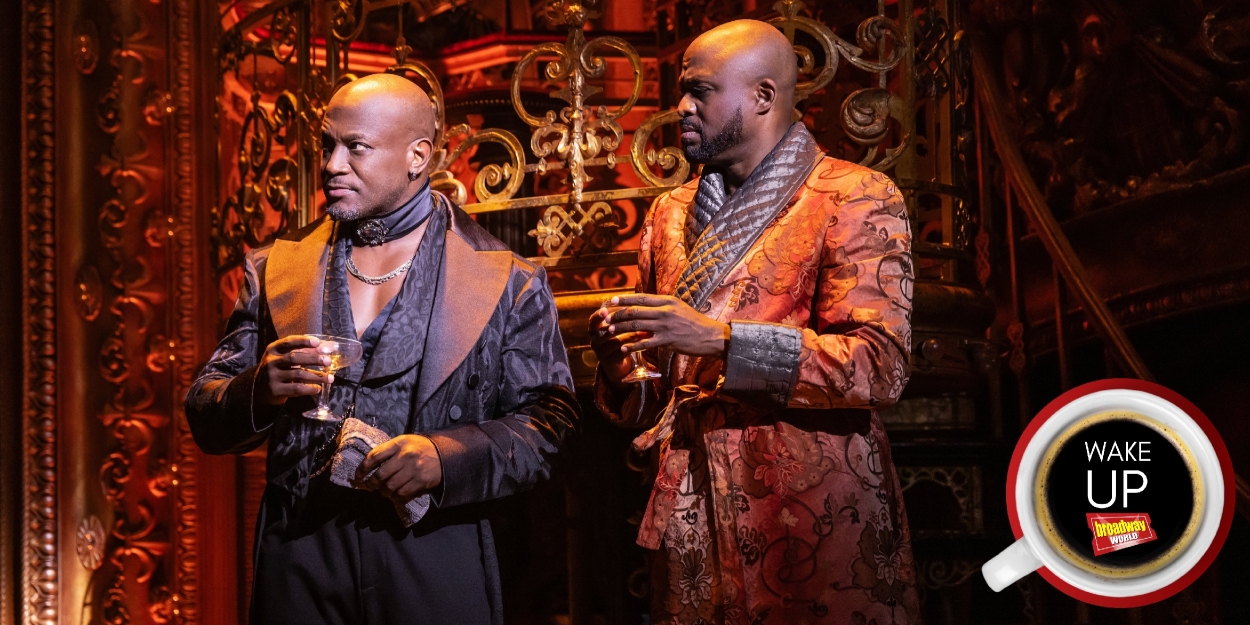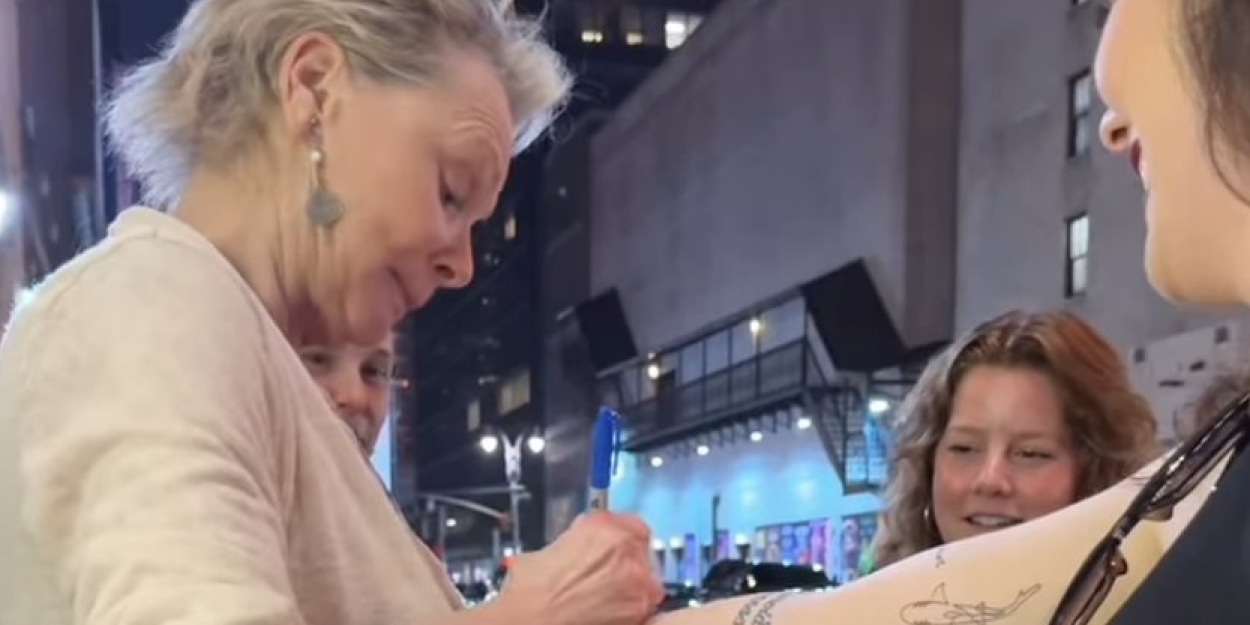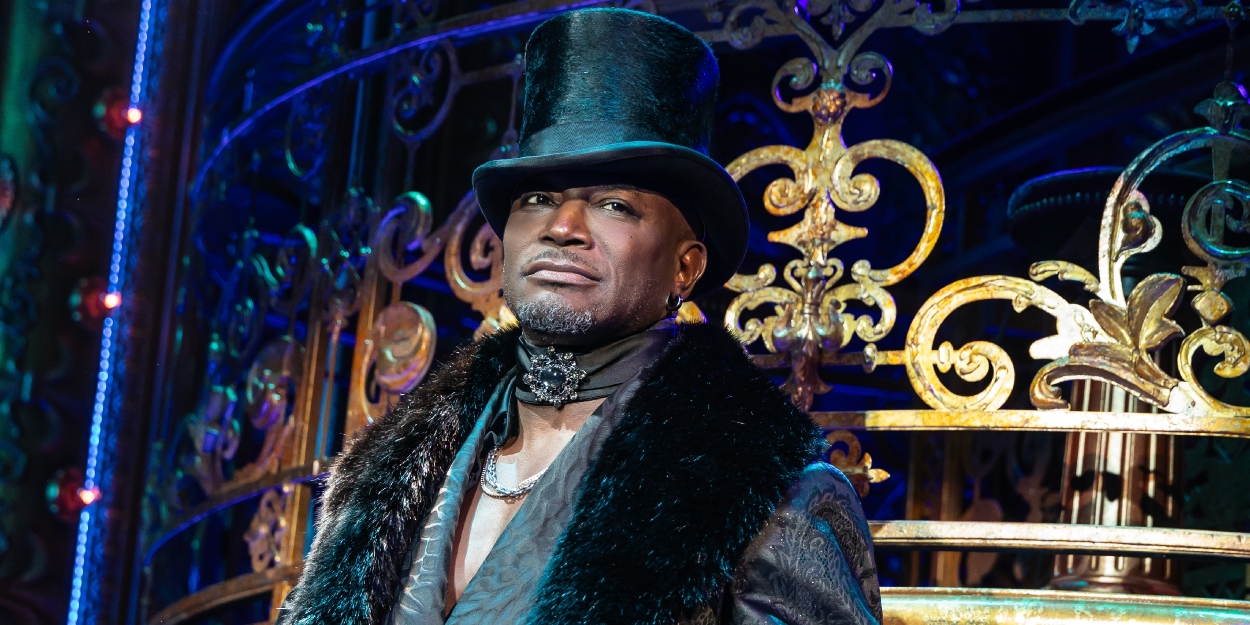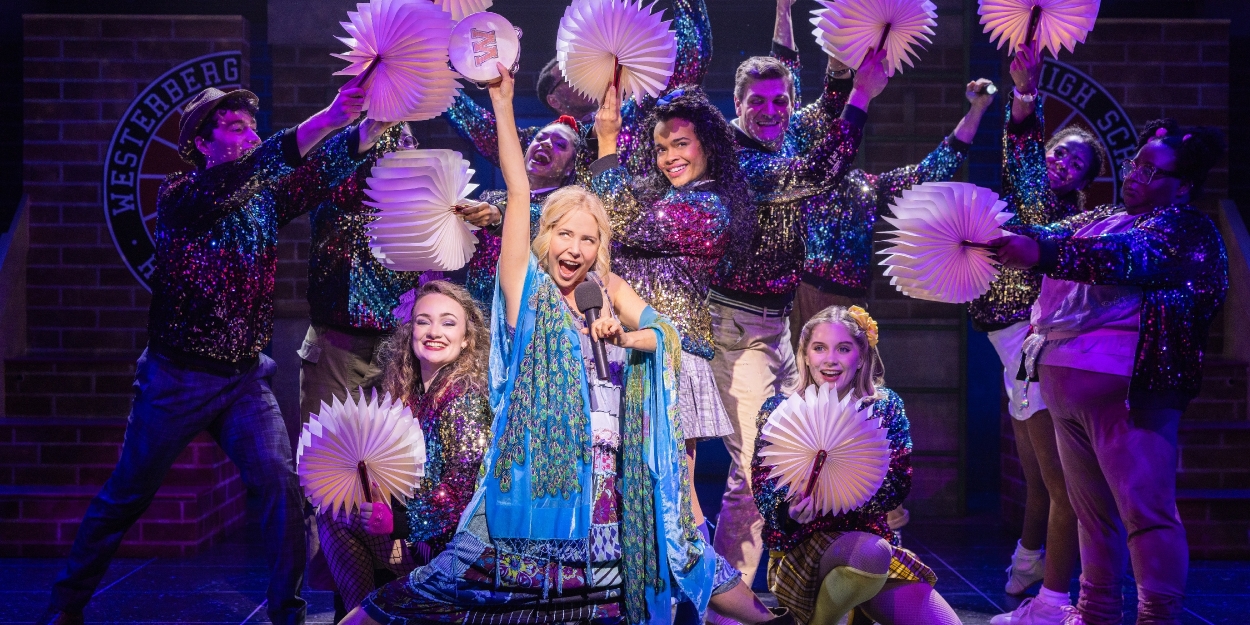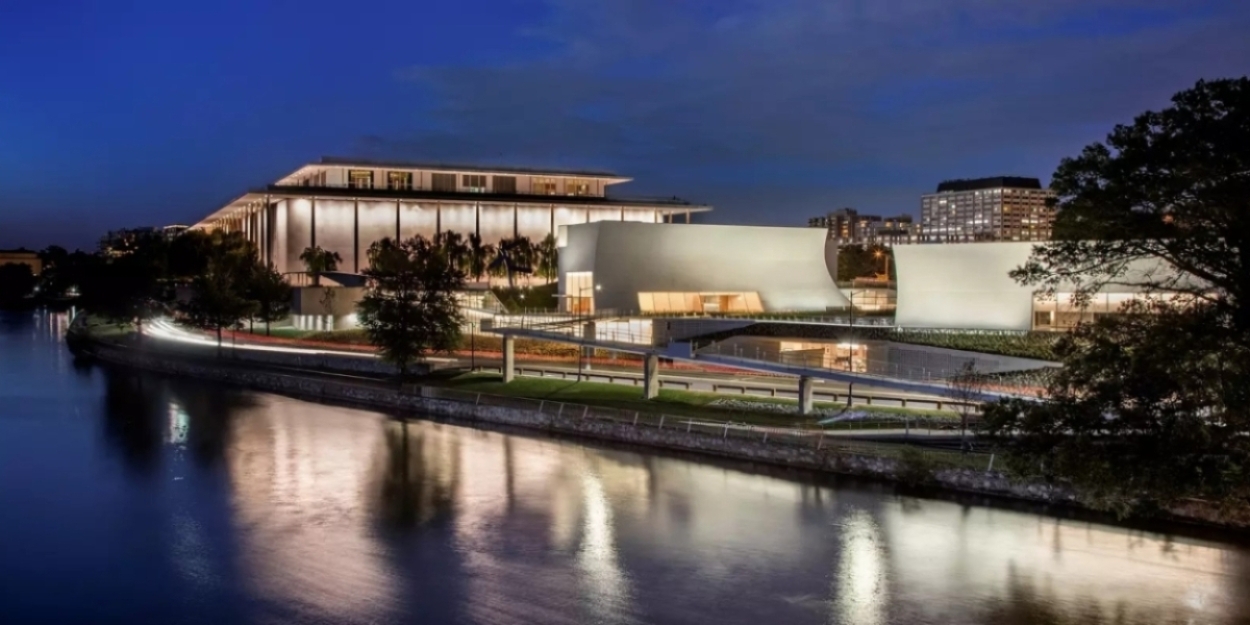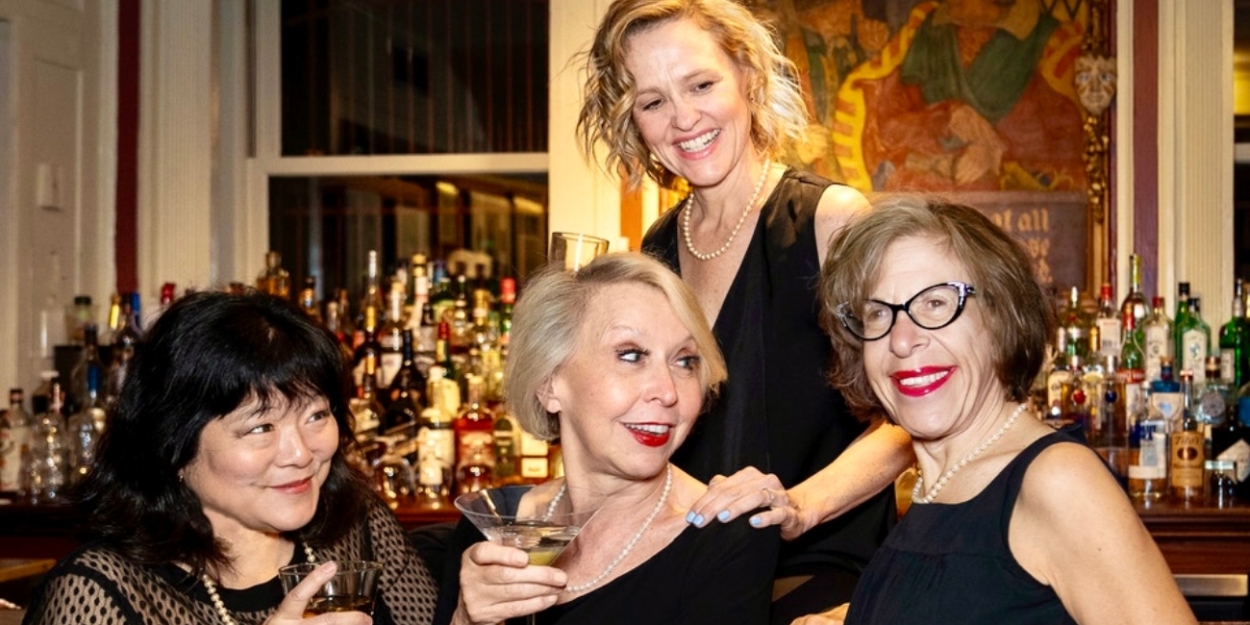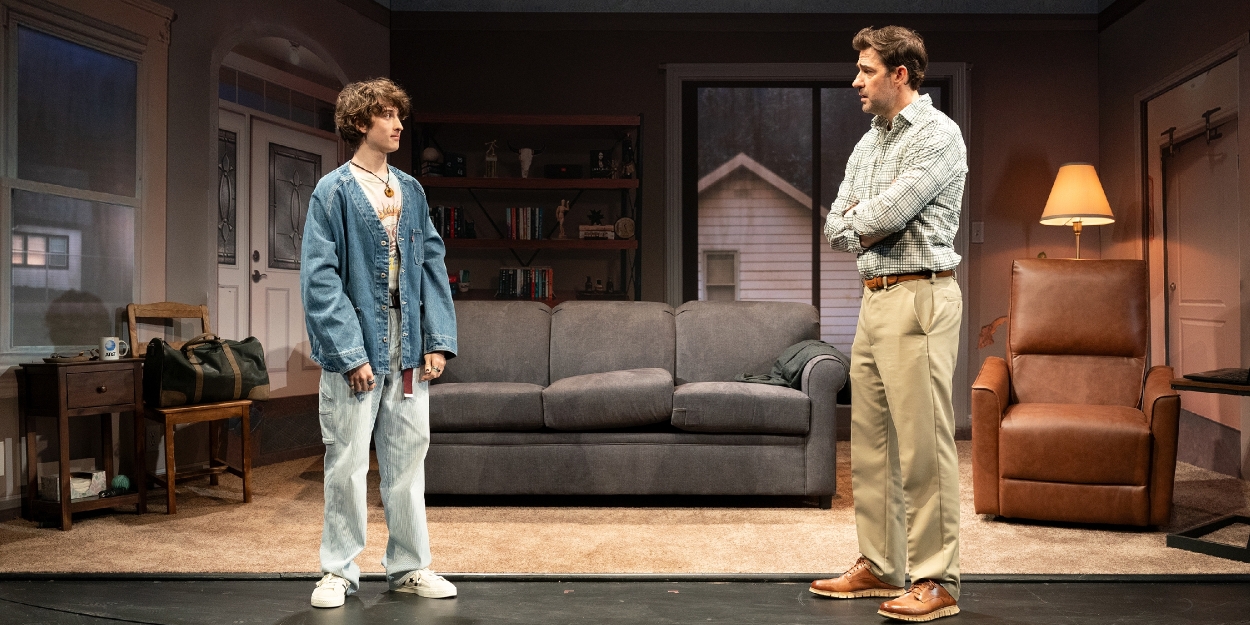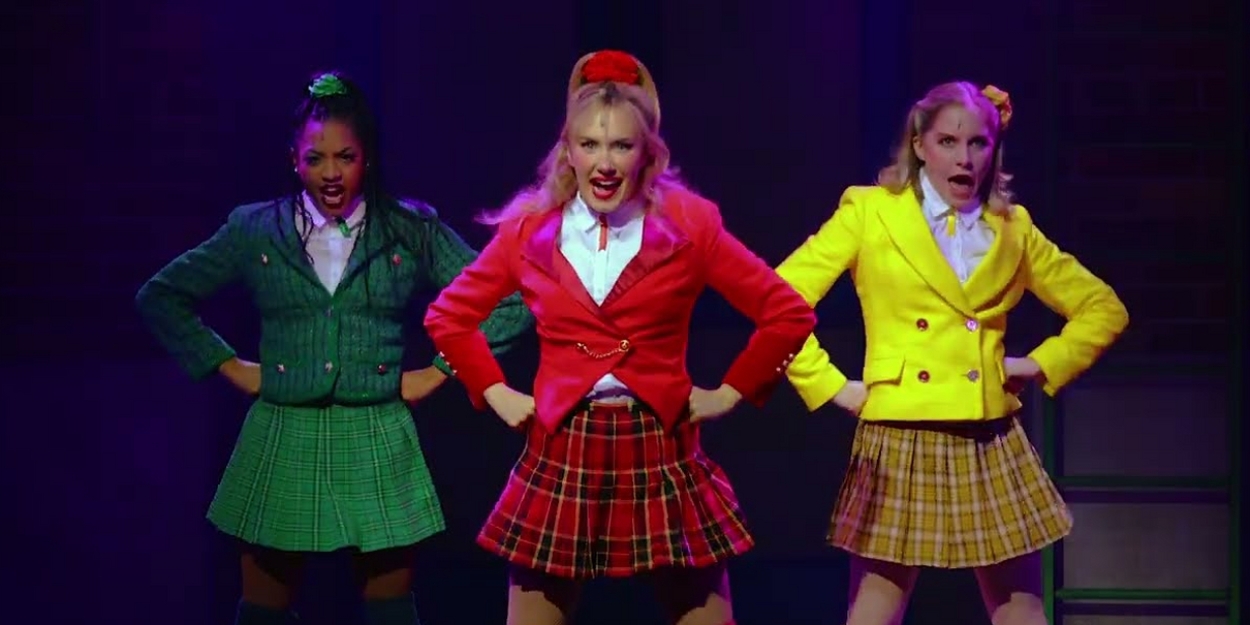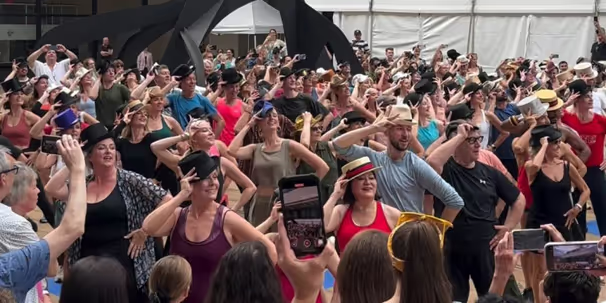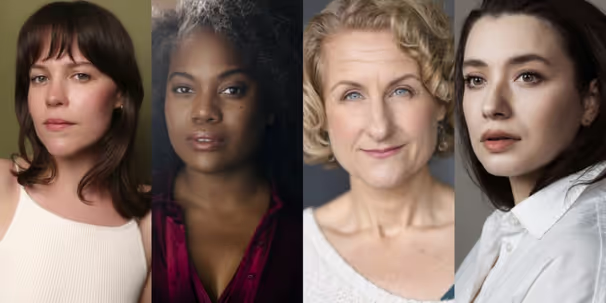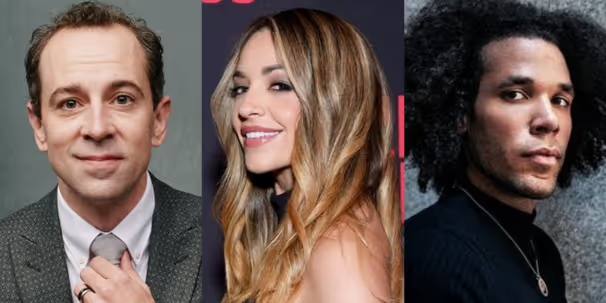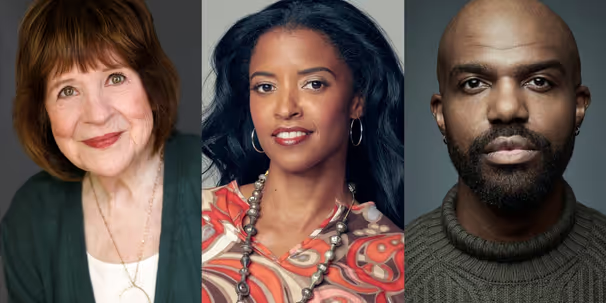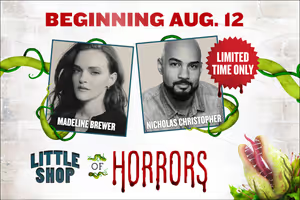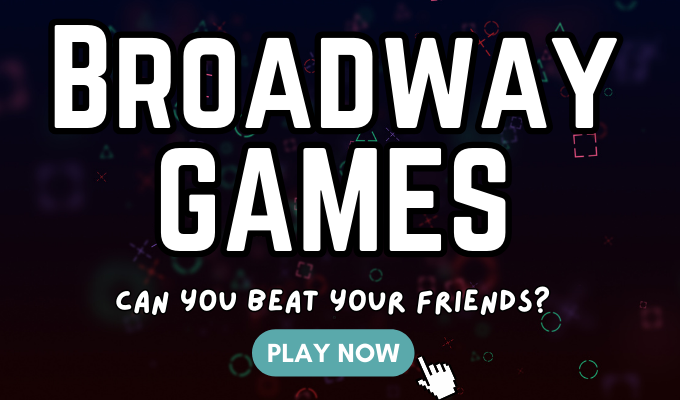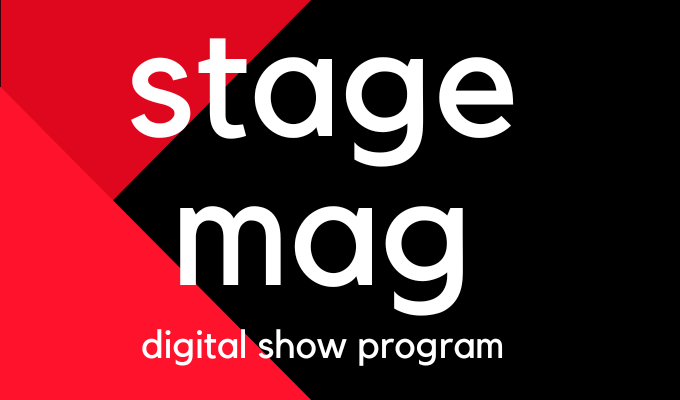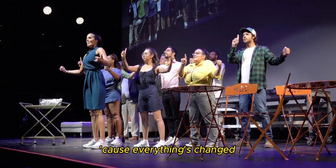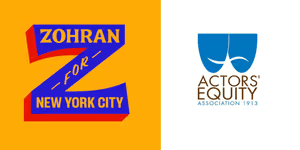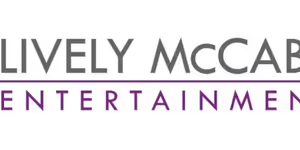- Exclusive: Deaf Broadway Brings WAITRESS to Lincoln Center
- Behind the Magic of Disney Cruise Line's HERCULES on the Disney Destiny
- Kerry Butler, Alex Newell, Andrew Durand & More Join BAT BOY at New York City Center
Latest News
Trending Stories
Recommended for You
Video: A CHORUS LINE Celebrates 50 Years With A Cast Flash Mob in NYC
Original cast members will reunite on Sunday, July 27, 2025 at the Shubert Theatre.
SUFFS North American Tour Cast & Cities Announced
The tour will have its first public performance on September 8, 2025, at the Capitol Theatre in Yakima, WA.
Rob McClure, Ana Villafañe, and More to Star in DAMN YANKEES
The production will run from September 9 – November 9, 2025.
Marylouise Burke, Renée Elise Goldsberry, and More Will Lead THE BALUSTERS
The production will open in Spring 2026 on Broadway at the Samuel J. Friedman Theatre.
Ticket Central
Hot Photos this week
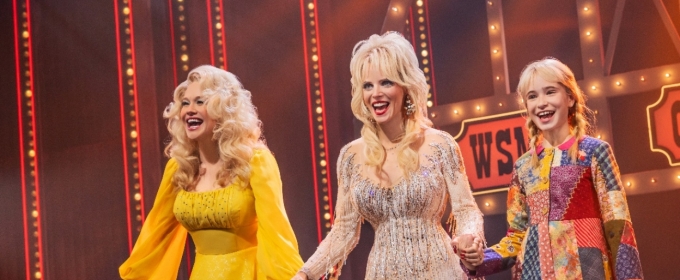 Photo: First Look at DOLLY: A TRUE ORIGINAL MUSICAL
Get a First look at Carrie St. Louis as ‘Dolly,’ Katie Rose Clarke as ‘Dolly Parton,’ and Quinn Titcomb as ‘Little Dolly.’
Photo: First Look at DOLLY: A TRUE ORIGINAL MUSICAL
Get a First look at Carrie St. Louis as ‘Dolly,’ Katie Rose Clarke as ‘Dolly Parton,’ and Quinn Titcomb as ‘Little Dolly.’
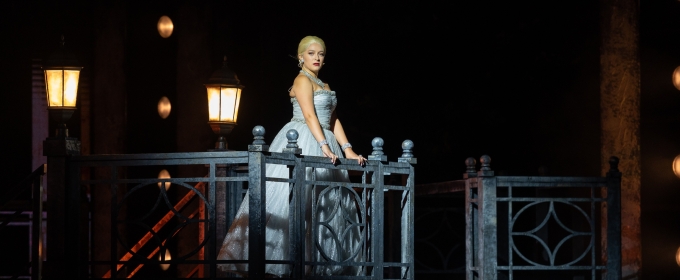 First Look at EVITA at The Muny
Performances run July 18-24.
First Look at EVITA at The Muny
Performances run July 18-24.
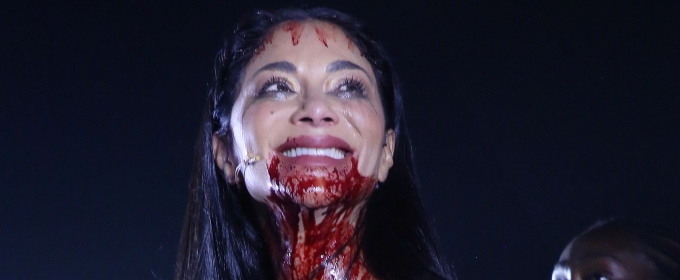 Scherzinger and the Cast of SUNSET BLVD. Take Final Bow
The show played its final performance on July 20 at the St. James Theatre following 20 previews and 312 regular performances.
Scherzinger and the Cast of SUNSET BLVD. Take Final Bow
The show played its final performance on July 20 at the St. James Theatre following 20 previews and 312 regular performances.
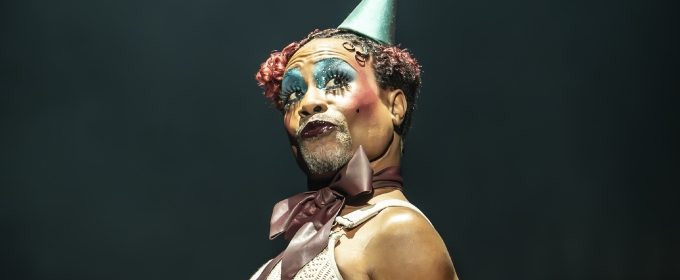 Billy Porter and Marisha Wallace in CABARET
Porter and Wallace begin performances on Tuesday, July 22.
Billy Porter and Marisha Wallace in CABARET
Porter and Wallace begin performances on Tuesday, July 22.
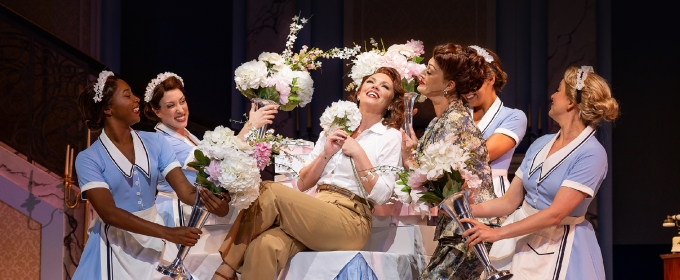 Robyn Hurder, Andrew Durand, and More Star in HIGH SOCIETY at Ogunquit Playhouse
The production runs July 24 through August 23 in Ogunquit, Maine.
Robyn Hurder, Andrew Durand, and More Star in HIGH SOCIETY at Ogunquit Playhouse
The production runs July 24 through August 23 in Ogunquit, Maine.
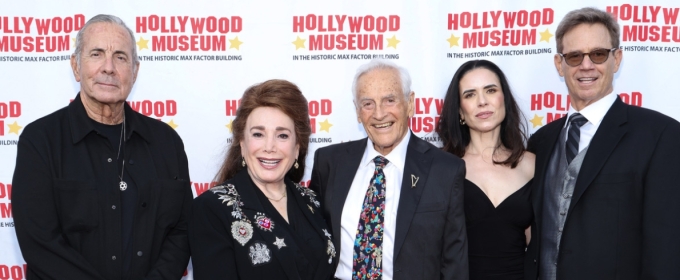 The Hollywood Museum Opens Marx Brothers Exhibit LEGENDS OF LAUGHTER
Exhibit features rare memorabilia, original costumes, and family tributes to comedy legends.
The Hollywood Museum Opens Marx Brothers Exhibit LEGENDS OF LAUGHTER
Exhibit features rare memorabilia, original costumes, and family tributes to comedy legends.
 First Look at EVITA at The Muny
Performances run July 18-24.
First Look at EVITA at The Muny
Performances run July 18-24.
 Scherzinger and the Cast of SUNSET BLVD. Take Final Bow
The show played its final performance on July 20 at the St. James Theatre following 20 previews and 312 regular performances.
Scherzinger and the Cast of SUNSET BLVD. Take Final Bow
The show played its final performance on July 20 at the St. James Theatre following 20 previews and 312 regular performances.
 Billy Porter and Marisha Wallace in CABARET
Porter and Wallace begin performances on Tuesday, July 22.
Billy Porter and Marisha Wallace in CABARET
Porter and Wallace begin performances on Tuesday, July 22.
 Robyn Hurder, Andrew Durand, and More Star in HIGH SOCIETY at Ogunquit Playhouse
The production runs July 24 through August 23 in Ogunquit, Maine.
Robyn Hurder, Andrew Durand, and More Star in HIGH SOCIETY at Ogunquit Playhouse
The production runs July 24 through August 23 in Ogunquit, Maine.
 The Hollywood Museum Opens Marx Brothers Exhibit LEGENDS OF LAUGHTER
Exhibit features rare memorabilia, original costumes, and family tributes to comedy legends.
The Hollywood Museum Opens Marx Brothers Exhibit LEGENDS OF LAUGHTER
Exhibit features rare memorabilia, original costumes, and family tributes to comedy legends.
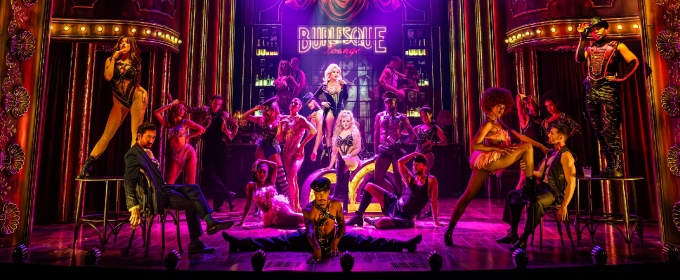 Jess Folley, Todrick Hall and More in BURLESQUE THE MUSICAL in London
The show plays for a limited season until Saturday 6 September 2025.
Jess Folley, Todrick Hall and More in BURLESQUE THE MUSICAL in London
The show plays for a limited season until Saturday 6 September 2025.
 Scherzinger and the Cast of SUNSET BLVD. Take Final Bow
The show played its final performance on July 20 at the St. James Theatre following 20 previews and 312 regular performances.
Scherzinger and the Cast of SUNSET BLVD. Take Final Bow
The show played its final performance on July 20 at the St. James Theatre following 20 previews and 312 regular performances.
 Billy Porter and Marisha Wallace in CABARET
Porter and Wallace begin performances on Tuesday, July 22.
Billy Porter and Marisha Wallace in CABARET
Porter and Wallace begin performances on Tuesday, July 22.
 Robyn Hurder, Andrew Durand, and More Star in HIGH SOCIETY at Ogunquit Playhouse
The production runs July 24 through August 23 in Ogunquit, Maine.
Robyn Hurder, Andrew Durand, and More Star in HIGH SOCIETY at Ogunquit Playhouse
The production runs July 24 through August 23 in Ogunquit, Maine.
 The Hollywood Museum Opens Marx Brothers Exhibit LEGENDS OF LAUGHTER
Exhibit features rare memorabilia, original costumes, and family tributes to comedy legends.
The Hollywood Museum Opens Marx Brothers Exhibit LEGENDS OF LAUGHTER
Exhibit features rare memorabilia, original costumes, and family tributes to comedy legends.
 Jess Folley, Todrick Hall and More in BURLESQUE THE MUSICAL in London
The show plays for a limited season until Saturday 6 September 2025.
Jess Folley, Todrick Hall and More in BURLESQUE THE MUSICAL in London
The show plays for a limited season until Saturday 6 September 2025.
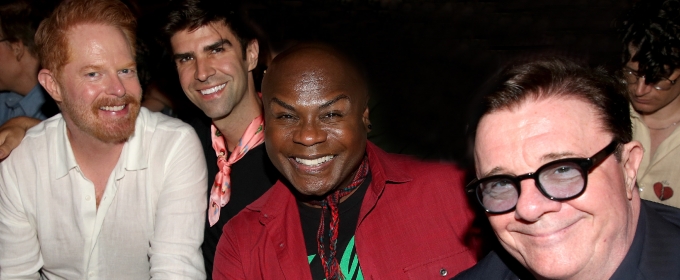 Cole Escola, Sadie Sink, and More at Opening Night of Josh Sharp's TA-DA!
Performances will continue for a limited run through August 23.
Cole Escola, Sadie Sink, and More at Opening Night of Josh Sharp's TA-DA!
Performances will continue for a limited run through August 23.
 Billy Porter and Marisha Wallace in CABARET
Porter and Wallace begin performances on Tuesday, July 22.
Billy Porter and Marisha Wallace in CABARET
Porter and Wallace begin performances on Tuesday, July 22.
 Robyn Hurder, Andrew Durand, and More Star in HIGH SOCIETY at Ogunquit Playhouse
The production runs July 24 through August 23 in Ogunquit, Maine.
Robyn Hurder, Andrew Durand, and More Star in HIGH SOCIETY at Ogunquit Playhouse
The production runs July 24 through August 23 in Ogunquit, Maine.
 The Hollywood Museum Opens Marx Brothers Exhibit LEGENDS OF LAUGHTER
Exhibit features rare memorabilia, original costumes, and family tributes to comedy legends.
The Hollywood Museum Opens Marx Brothers Exhibit LEGENDS OF LAUGHTER
Exhibit features rare memorabilia, original costumes, and family tributes to comedy legends.
 Jess Folley, Todrick Hall and More in BURLESQUE THE MUSICAL in London
The show plays for a limited season until Saturday 6 September 2025.
Jess Folley, Todrick Hall and More in BURLESQUE THE MUSICAL in London
The show plays for a limited season until Saturday 6 September 2025.
 Cole Escola, Sadie Sink, and More at Opening Night of Josh Sharp's TA-DA!
Performances will continue for a limited run through August 23.
Cole Escola, Sadie Sink, and More at Opening Night of Josh Sharp's TA-DA!
Performances will continue for a limited run through August 23.
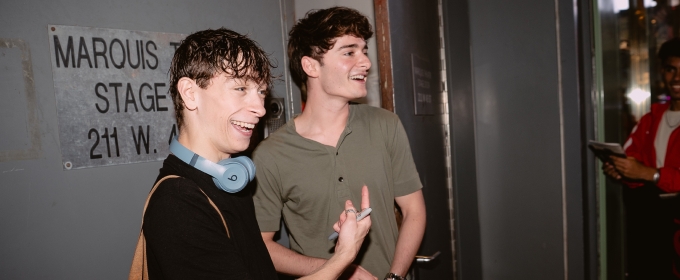 Noah Schnapp Visits STRANGER THINGS on Broadway
The series star joined Tony nominee Louis McCartney, star of the stage show, to surprise Stranger Things fans at the stage door after the performance.
Noah Schnapp Visits STRANGER THINGS on Broadway
The series star joined Tony nominee Louis McCartney, star of the stage show, to surprise Stranger Things fans at the stage door after the performance.
 Robyn Hurder, Andrew Durand, and More Star in HIGH SOCIETY at Ogunquit Playhouse
The production runs July 24 through August 23 in Ogunquit, Maine.
Robyn Hurder, Andrew Durand, and More Star in HIGH SOCIETY at Ogunquit Playhouse
The production runs July 24 through August 23 in Ogunquit, Maine.
 The Hollywood Museum Opens Marx Brothers Exhibit LEGENDS OF LAUGHTER
Exhibit features rare memorabilia, original costumes, and family tributes to comedy legends.
The Hollywood Museum Opens Marx Brothers Exhibit LEGENDS OF LAUGHTER
Exhibit features rare memorabilia, original costumes, and family tributes to comedy legends.
 Jess Folley, Todrick Hall and More in BURLESQUE THE MUSICAL in London
The show plays for a limited season until Saturday 6 September 2025.
Jess Folley, Todrick Hall and More in BURLESQUE THE MUSICAL in London
The show plays for a limited season until Saturday 6 September 2025.
 Cole Escola, Sadie Sink, and More at Opening Night of Josh Sharp's TA-DA!
Performances will continue for a limited run through August 23.
Cole Escola, Sadie Sink, and More at Opening Night of Josh Sharp's TA-DA!
Performances will continue for a limited run through August 23.
 Noah Schnapp Visits STRANGER THINGS on Broadway
The series star joined Tony nominee Louis McCartney, star of the stage show, to surprise Stranger Things fans at the stage door after the performance.
Noah Schnapp Visits STRANGER THINGS on Broadway
The series star joined Tony nominee Louis McCartney, star of the stage show, to surprise Stranger Things fans at the stage door after the performance.
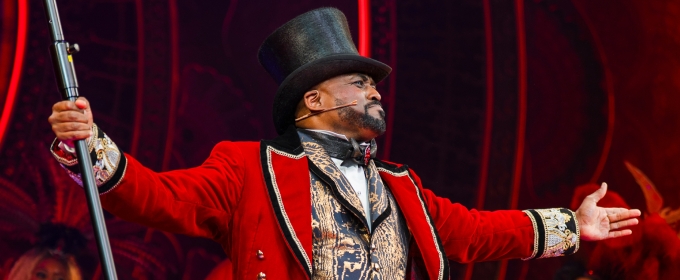 Wayne Brady and Taye Diggs Join the Cast of MOULIN ROUGE! THE MUSICAL
Diggs plays through September 28, with Brady staying through November 9.
Wayne Brady and Taye Diggs Join the Cast of MOULIN ROUGE! THE MUSICAL
Diggs plays through September 28, with Brady staying through November 9.
 The Hollywood Museum Opens Marx Brothers Exhibit LEGENDS OF LAUGHTER
Exhibit features rare memorabilia, original costumes, and family tributes to comedy legends.
The Hollywood Museum Opens Marx Brothers Exhibit LEGENDS OF LAUGHTER
Exhibit features rare memorabilia, original costumes, and family tributes to comedy legends.
 Jess Folley, Todrick Hall and More in BURLESQUE THE MUSICAL in London
The show plays for a limited season until Saturday 6 September 2025.
Jess Folley, Todrick Hall and More in BURLESQUE THE MUSICAL in London
The show plays for a limited season until Saturday 6 September 2025.
 Cole Escola, Sadie Sink, and More at Opening Night of Josh Sharp's TA-DA!
Performances will continue for a limited run through August 23.
Cole Escola, Sadie Sink, and More at Opening Night of Josh Sharp's TA-DA!
Performances will continue for a limited run through August 23.
 Noah Schnapp Visits STRANGER THINGS on Broadway
The series star joined Tony nominee Louis McCartney, star of the stage show, to surprise Stranger Things fans at the stage door after the performance.
Noah Schnapp Visits STRANGER THINGS on Broadway
The series star joined Tony nominee Louis McCartney, star of the stage show, to surprise Stranger Things fans at the stage door after the performance.
 Wayne Brady and Taye Diggs Join the Cast of MOULIN ROUGE! THE MUSICAL
Diggs plays through September 28, with Brady staying through November 9.
Wayne Brady and Taye Diggs Join the Cast of MOULIN ROUGE! THE MUSICAL
Diggs plays through September 28, with Brady staying through November 9.
 Taye Diggs and Wayne Brady in MOULIN ROUGE! THE MUSICAL
Taye Diggs plays through September 28, with Wayne Brady staying through November 9.
Taye Diggs and Wayne Brady in MOULIN ROUGE! THE MUSICAL
Taye Diggs plays through September 28, with Wayne Brady staying through November 9.
 Jess Folley, Todrick Hall and More in BURLESQUE THE MUSICAL in London
The show plays for a limited season until Saturday 6 September 2025.
Jess Folley, Todrick Hall and More in BURLESQUE THE MUSICAL in London
The show plays for a limited season until Saturday 6 September 2025.
 Cole Escola, Sadie Sink, and More at Opening Night of Josh Sharp's TA-DA!
Performances will continue for a limited run through August 23.
Cole Escola, Sadie Sink, and More at Opening Night of Josh Sharp's TA-DA!
Performances will continue for a limited run through August 23.
 Noah Schnapp Visits STRANGER THINGS on Broadway
The series star joined Tony nominee Louis McCartney, star of the stage show, to surprise Stranger Things fans at the stage door after the performance.
Noah Schnapp Visits STRANGER THINGS on Broadway
The series star joined Tony nominee Louis McCartney, star of the stage show, to surprise Stranger Things fans at the stage door after the performance.
 Wayne Brady and Taye Diggs Join the Cast of MOULIN ROUGE! THE MUSICAL
Diggs plays through September 28, with Brady staying through November 9.
Wayne Brady and Taye Diggs Join the Cast of MOULIN ROUGE! THE MUSICAL
Diggs plays through September 28, with Brady staying through November 9.
 Taye Diggs and Wayne Brady in MOULIN ROUGE! THE MUSICAL
Taye Diggs plays through September 28, with Wayne Brady staying through November 9.
Taye Diggs and Wayne Brady in MOULIN ROUGE! THE MUSICAL
Taye Diggs plays through September 28, with Wayne Brady staying through November 9.
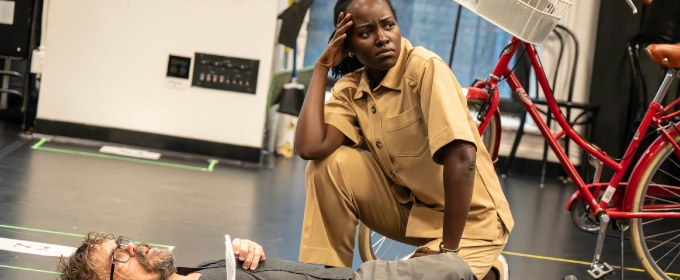 In Rehearsals for Shakespeare in the Park's TWELFTH NIGHT
Twelfth Night will run August 7 through September 14, 2025.
In Rehearsals for Shakespeare in the Park's TWELFTH NIGHT
Twelfth Night will run August 7 through September 14, 2025.
 Cole Escola, Sadie Sink, and More at Opening Night of Josh Sharp's TA-DA!
Performances will continue for a limited run through August 23.
Cole Escola, Sadie Sink, and More at Opening Night of Josh Sharp's TA-DA!
Performances will continue for a limited run through August 23.
 Noah Schnapp Visits STRANGER THINGS on Broadway
The series star joined Tony nominee Louis McCartney, star of the stage show, to surprise Stranger Things fans at the stage door after the performance.
Noah Schnapp Visits STRANGER THINGS on Broadway
The series star joined Tony nominee Louis McCartney, star of the stage show, to surprise Stranger Things fans at the stage door after the performance.
 Wayne Brady and Taye Diggs Join the Cast of MOULIN ROUGE! THE MUSICAL
Diggs plays through September 28, with Brady staying through November 9.
Wayne Brady and Taye Diggs Join the Cast of MOULIN ROUGE! THE MUSICAL
Diggs plays through September 28, with Brady staying through November 9.
 Taye Diggs and Wayne Brady in MOULIN ROUGE! THE MUSICAL
Taye Diggs plays through September 28, with Wayne Brady staying through November 9.
Taye Diggs and Wayne Brady in MOULIN ROUGE! THE MUSICAL
Taye Diggs plays through September 28, with Wayne Brady staying through November 9.
 In Rehearsals for Shakespeare in the Park's TWELFTH NIGHT
Twelfth Night will run August 7 through September 14, 2025.
In Rehearsals for Shakespeare in the Park's TWELFTH NIGHT
Twelfth Night will run August 7 through September 14, 2025.
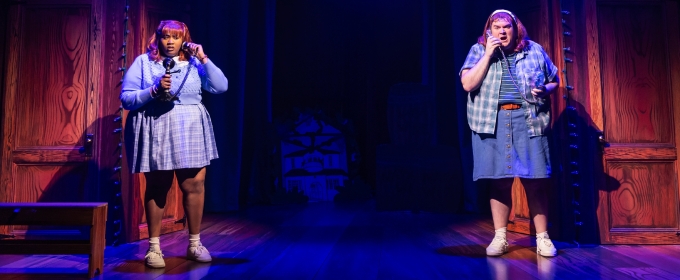 GINGER TWINSIES World Premiere First Look
Performances began on July 10, 2025, for the strictly limited, 16-week engagement through October 26, 2025.
GINGER TWINSIES World Premiere First Look
Performances began on July 10, 2025, for the strictly limited, 16-week engagement through October 26, 2025.
 Noah Schnapp Visits STRANGER THINGS on Broadway
The series star joined Tony nominee Louis McCartney, star of the stage show, to surprise Stranger Things fans at the stage door after the performance.
Noah Schnapp Visits STRANGER THINGS on Broadway
The series star joined Tony nominee Louis McCartney, star of the stage show, to surprise Stranger Things fans at the stage door after the performance.
 Wayne Brady and Taye Diggs Join the Cast of MOULIN ROUGE! THE MUSICAL
Diggs plays through September 28, with Brady staying through November 9.
Wayne Brady and Taye Diggs Join the Cast of MOULIN ROUGE! THE MUSICAL
Diggs plays through September 28, with Brady staying through November 9.
 Taye Diggs and Wayne Brady in MOULIN ROUGE! THE MUSICAL
Taye Diggs plays through September 28, with Wayne Brady staying through November 9.
Taye Diggs and Wayne Brady in MOULIN ROUGE! THE MUSICAL
Taye Diggs plays through September 28, with Wayne Brady staying through November 9.
 In Rehearsals for Shakespeare in the Park's TWELFTH NIGHT
Twelfth Night will run August 7 through September 14, 2025.
In Rehearsals for Shakespeare in the Park's TWELFTH NIGHT
Twelfth Night will run August 7 through September 14, 2025.
 GINGER TWINSIES World Premiere First Look
Performances began on July 10, 2025, for the strictly limited, 16-week engagement through October 26, 2025.
GINGER TWINSIES World Premiere First Look
Performances began on July 10, 2025, for the strictly limited, 16-week engagement through October 26, 2025.
 Inside Barrington Stage's Gala A NIGHT ON THE RED CARPET
The event was held on Monday, July 21.
Inside Barrington Stage's Gala A NIGHT ON THE RED CARPET
The event was held on Monday, July 21.
 Wayne Brady and Taye Diggs Join the Cast of MOULIN ROUGE! THE MUSICAL
Diggs plays through September 28, with Brady staying through November 9.
Wayne Brady and Taye Diggs Join the Cast of MOULIN ROUGE! THE MUSICAL
Diggs plays through September 28, with Brady staying through November 9.
 Taye Diggs and Wayne Brady in MOULIN ROUGE! THE MUSICAL
Taye Diggs plays through September 28, with Wayne Brady staying through November 9.
Taye Diggs and Wayne Brady in MOULIN ROUGE! THE MUSICAL
Taye Diggs plays through September 28, with Wayne Brady staying through November 9.
 In Rehearsals for Shakespeare in the Park's TWELFTH NIGHT
Twelfth Night will run August 7 through September 14, 2025.
In Rehearsals for Shakespeare in the Park's TWELFTH NIGHT
Twelfth Night will run August 7 through September 14, 2025.
 GINGER TWINSIES World Premiere First Look
Performances began on July 10, 2025, for the strictly limited, 16-week engagement through October 26, 2025.
GINGER TWINSIES World Premiere First Look
Performances began on July 10, 2025, for the strictly limited, 16-week engagement through October 26, 2025.
 Inside Barrington Stage's Gala A NIGHT ON THE RED CARPET
The event was held on Monday, July 21.
Inside Barrington Stage's Gala A NIGHT ON THE RED CARPET
The event was held on Monday, July 21.
 GINGER TWINSIES Celebrates Its Star-Studded Opening Night
The cast was joined by many familiar faces including Jesse Tyler Ferguson, Lin-Manuel Miranda, Busy Phillips, and more.
GINGER TWINSIES Celebrates Its Star-Studded Opening Night
The cast was joined by many familiar faces including Jesse Tyler Ferguson, Lin-Manuel Miranda, Busy Phillips, and more.
 Taye Diggs and Wayne Brady in MOULIN ROUGE! THE MUSICAL
Taye Diggs plays through September 28, with Wayne Brady staying through November 9.
Taye Diggs and Wayne Brady in MOULIN ROUGE! THE MUSICAL
Taye Diggs plays through September 28, with Wayne Brady staying through November 9.
 In Rehearsals for Shakespeare in the Park's TWELFTH NIGHT
Twelfth Night will run August 7 through September 14, 2025.
In Rehearsals for Shakespeare in the Park's TWELFTH NIGHT
Twelfth Night will run August 7 through September 14, 2025.
 GINGER TWINSIES World Premiere First Look
Performances began on July 10, 2025, for the strictly limited, 16-week engagement through October 26, 2025.
GINGER TWINSIES World Premiere First Look
Performances began on July 10, 2025, for the strictly limited, 16-week engagement through October 26, 2025.
 Inside Barrington Stage's Gala A NIGHT ON THE RED CARPET
The event was held on Monday, July 21.
Inside Barrington Stage's Gala A NIGHT ON THE RED CARPET
The event was held on Monday, July 21.
 GINGER TWINSIES Celebrates Its Star-Studded Opening Night
The cast was joined by many familiar faces including Jesse Tyler Ferguson, Lin-Manuel Miranda, Busy Phillips, and more.
GINGER TWINSIES Celebrates Its Star-Studded Opening Night
The cast was joined by many familiar faces including Jesse Tyler Ferguson, Lin-Manuel Miranda, Busy Phillips, and more.
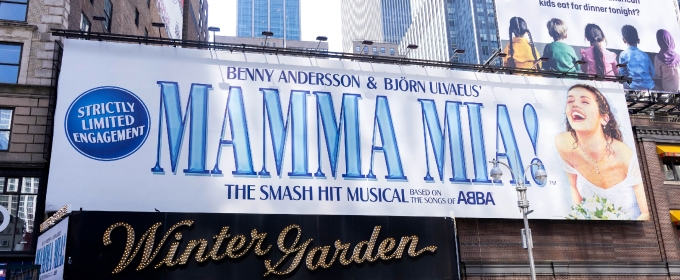 MAMMA MIA! Returns to the Winter Garden Theatre
The limited engagement will play for six months only, through Sunday, February 1, 2026.
MAMMA MIA! Returns to the Winter Garden Theatre
The limited engagement will play for six months only, through Sunday, February 1, 2026.
 In Rehearsals for Shakespeare in the Park's TWELFTH NIGHT
Twelfth Night will run August 7 through September 14, 2025.
In Rehearsals for Shakespeare in the Park's TWELFTH NIGHT
Twelfth Night will run August 7 through September 14, 2025.
 GINGER TWINSIES World Premiere First Look
Performances began on July 10, 2025, for the strictly limited, 16-week engagement through October 26, 2025.
GINGER TWINSIES World Premiere First Look
Performances began on July 10, 2025, for the strictly limited, 16-week engagement through October 26, 2025.
 Inside Barrington Stage's Gala A NIGHT ON THE RED CARPET
The event was held on Monday, July 21.
Inside Barrington Stage's Gala A NIGHT ON THE RED CARPET
The event was held on Monday, July 21.
 GINGER TWINSIES Celebrates Its Star-Studded Opening Night
The cast was joined by many familiar faces including Jesse Tyler Ferguson, Lin-Manuel Miranda, Busy Phillips, and more.
GINGER TWINSIES Celebrates Its Star-Studded Opening Night
The cast was joined by many familiar faces including Jesse Tyler Ferguson, Lin-Manuel Miranda, Busy Phillips, and more.
 MAMMA MIA! Returns to the Winter Garden Theatre
The limited engagement will play for six months only, through Sunday, February 1, 2026.
MAMMA MIA! Returns to the Winter Garden Theatre
The limited engagement will play for six months only, through Sunday, February 1, 2026.
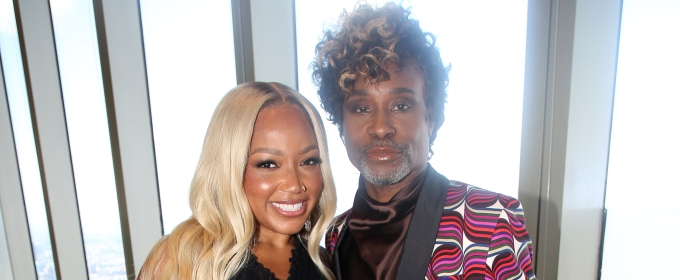 Porter and Wallace Meet the Press Ahead of CABARET Run
They began performances on Tuesday, July 22 and continue for the production’s final 13 weeks through Sunday, October 19.
Porter and Wallace Meet the Press Ahead of CABARET Run
They began performances on Tuesday, July 22 and continue for the production’s final 13 weeks through Sunday, October 19.
 GINGER TWINSIES World Premiere First Look
Performances began on July 10, 2025, for the strictly limited, 16-week engagement through October 26, 2025.
GINGER TWINSIES World Premiere First Look
Performances began on July 10, 2025, for the strictly limited, 16-week engagement through October 26, 2025.
 Inside Barrington Stage's Gala A NIGHT ON THE RED CARPET
The event was held on Monday, July 21.
Inside Barrington Stage's Gala A NIGHT ON THE RED CARPET
The event was held on Monday, July 21.
 GINGER TWINSIES Celebrates Its Star-Studded Opening Night
The cast was joined by many familiar faces including Jesse Tyler Ferguson, Lin-Manuel Miranda, Busy Phillips, and more.
GINGER TWINSIES Celebrates Its Star-Studded Opening Night
The cast was joined by many familiar faces including Jesse Tyler Ferguson, Lin-Manuel Miranda, Busy Phillips, and more.
 MAMMA MIA! Returns to the Winter Garden Theatre
The limited engagement will play for six months only, through Sunday, February 1, 2026.
MAMMA MIA! Returns to the Winter Garden Theatre
The limited engagement will play for six months only, through Sunday, February 1, 2026.
 Porter and Wallace Meet the Press Ahead of CABARET Run
They began performances on Tuesday, July 22 and continue for the production’s final 13 weeks through Sunday, October 19.
Porter and Wallace Meet the Press Ahead of CABARET Run
They began performances on Tuesday, July 22 and continue for the production’s final 13 weeks through Sunday, October 19.
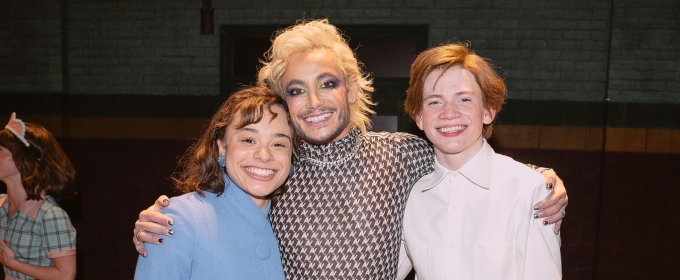 Frankie Grande Visits STRANGER THINGS: THE FIRST SHADOW
He saw the show two days in a row this week, bringing his mother Joan to the show to meet the cast as well.
Frankie Grande Visits STRANGER THINGS: THE FIRST SHADOW
He saw the show two days in a row this week, bringing his mother Joan to the show to meet the cast as well.
 Inside Barrington Stage's Gala A NIGHT ON THE RED CARPET
The event was held on Monday, July 21.
Inside Barrington Stage's Gala A NIGHT ON THE RED CARPET
The event was held on Monday, July 21.
 GINGER TWINSIES Celebrates Its Star-Studded Opening Night
The cast was joined by many familiar faces including Jesse Tyler Ferguson, Lin-Manuel Miranda, Busy Phillips, and more.
GINGER TWINSIES Celebrates Its Star-Studded Opening Night
The cast was joined by many familiar faces including Jesse Tyler Ferguson, Lin-Manuel Miranda, Busy Phillips, and more.
 MAMMA MIA! Returns to the Winter Garden Theatre
The limited engagement will play for six months only, through Sunday, February 1, 2026.
MAMMA MIA! Returns to the Winter Garden Theatre
The limited engagement will play for six months only, through Sunday, February 1, 2026.
 Porter and Wallace Meet the Press Ahead of CABARET Run
They began performances on Tuesday, July 22 and continue for the production’s final 13 weeks through Sunday, October 19.
Porter and Wallace Meet the Press Ahead of CABARET Run
They began performances on Tuesday, July 22 and continue for the production’s final 13 weeks through Sunday, October 19.
 Frankie Grande Visits STRANGER THINGS: THE FIRST SHADOW
He saw the show two days in a row this week, bringing his mother Joan to the show to meet the cast as well.
Frankie Grande Visits STRANGER THINGS: THE FIRST SHADOW
He saw the show two days in a row this week, bringing his mother Joan to the show to meet the cast as well.
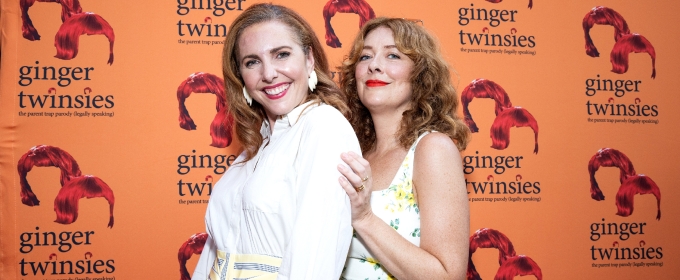 On the Opening Night Red Carpet for GINGER TWINSIES
Ginger Twinsies is running off-Broadway at the Orpheum Theatre.
On the Opening Night Red Carpet for GINGER TWINSIES
Ginger Twinsies is running off-Broadway at the Orpheum Theatre.
 GINGER TWINSIES Celebrates Its Star-Studded Opening Night
The cast was joined by many familiar faces including Jesse Tyler Ferguson, Lin-Manuel Miranda, Busy Phillips, and more.
GINGER TWINSIES Celebrates Its Star-Studded Opening Night
The cast was joined by many familiar faces including Jesse Tyler Ferguson, Lin-Manuel Miranda, Busy Phillips, and more.
 MAMMA MIA! Returns to the Winter Garden Theatre
The limited engagement will play for six months only, through Sunday, February 1, 2026.
MAMMA MIA! Returns to the Winter Garden Theatre
The limited engagement will play for six months only, through Sunday, February 1, 2026.
 Porter and Wallace Meet the Press Ahead of CABARET Run
They began performances on Tuesday, July 22 and continue for the production’s final 13 weeks through Sunday, October 19.
Porter and Wallace Meet the Press Ahead of CABARET Run
They began performances on Tuesday, July 22 and continue for the production’s final 13 weeks through Sunday, October 19.
 Frankie Grande Visits STRANGER THINGS: THE FIRST SHADOW
He saw the show two days in a row this week, bringing his mother Joan to the show to meet the cast as well.
Frankie Grande Visits STRANGER THINGS: THE FIRST SHADOW
He saw the show two days in a row this week, bringing his mother Joan to the show to meet the cast as well.
 On the Opening Night Red Carpet for GINGER TWINSIES
Ginger Twinsies is running off-Broadway at the Orpheum Theatre.
On the Opening Night Red Carpet for GINGER TWINSIES
Ginger Twinsies is running off-Broadway at the Orpheum Theatre.
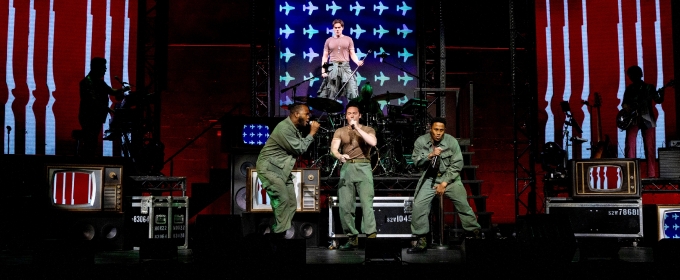 First Look at ROLLING THUNDER Off-Broadway
Rolling Thunder will open July 24 at New World Stages.
First Look at ROLLING THUNDER Off-Broadway
Rolling Thunder will open July 24 at New World Stages.
 MAMMA MIA! Returns to the Winter Garden Theatre
The limited engagement will play for six months only, through Sunday, February 1, 2026.
MAMMA MIA! Returns to the Winter Garden Theatre
The limited engagement will play for six months only, through Sunday, February 1, 2026.
 Porter and Wallace Meet the Press Ahead of CABARET Run
They began performances on Tuesday, July 22 and continue for the production’s final 13 weeks through Sunday, October 19.
Porter and Wallace Meet the Press Ahead of CABARET Run
They began performances on Tuesday, July 22 and continue for the production’s final 13 weeks through Sunday, October 19.
 Frankie Grande Visits STRANGER THINGS: THE FIRST SHADOW
He saw the show two days in a row this week, bringing his mother Joan to the show to meet the cast as well.
Frankie Grande Visits STRANGER THINGS: THE FIRST SHADOW
He saw the show two days in a row this week, bringing his mother Joan to the show to meet the cast as well.
 On the Opening Night Red Carpet for GINGER TWINSIES
Ginger Twinsies is running off-Broadway at the Orpheum Theatre.
On the Opening Night Red Carpet for GINGER TWINSIES
Ginger Twinsies is running off-Broadway at the Orpheum Theatre.
 First Look at ROLLING THUNDER Off-Broadway
Rolling Thunder will open July 24 at New World Stages.
First Look at ROLLING THUNDER Off-Broadway
Rolling Thunder will open July 24 at New World Stages.
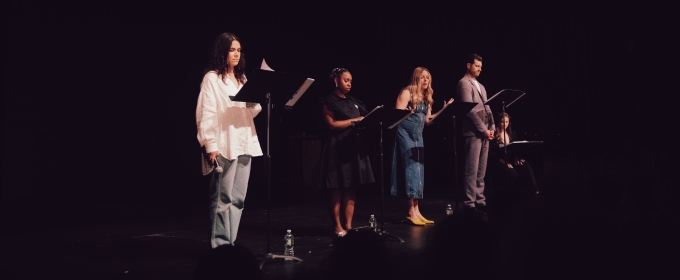 A PLAY ABOUT DAVID MAMET... Reading
Directed by Leslye Headland, the four-person cast featured Abbi Jacobson, Heléne Yorke, Billy Eichner and Paige Gilbert.
A PLAY ABOUT DAVID MAMET... Reading
Directed by Leslye Headland, the four-person cast featured Abbi Jacobson, Heléne Yorke, Billy Eichner and Paige Gilbert.
 Porter and Wallace Meet the Press Ahead of CABARET Run
They began performances on Tuesday, July 22 and continue for the production’s final 13 weeks through Sunday, October 19.
Porter and Wallace Meet the Press Ahead of CABARET Run
They began performances on Tuesday, July 22 and continue for the production’s final 13 weeks through Sunday, October 19.
 Frankie Grande Visits STRANGER THINGS: THE FIRST SHADOW
He saw the show two days in a row this week, bringing his mother Joan to the show to meet the cast as well.
Frankie Grande Visits STRANGER THINGS: THE FIRST SHADOW
He saw the show two days in a row this week, bringing his mother Joan to the show to meet the cast as well.
 On the Opening Night Red Carpet for GINGER TWINSIES
Ginger Twinsies is running off-Broadway at the Orpheum Theatre.
On the Opening Night Red Carpet for GINGER TWINSIES
Ginger Twinsies is running off-Broadway at the Orpheum Theatre.
 First Look at ROLLING THUNDER Off-Broadway
Rolling Thunder will open July 24 at New World Stages.
First Look at ROLLING THUNDER Off-Broadway
Rolling Thunder will open July 24 at New World Stages.
 A PLAY ABOUT DAVID MAMET... Reading
Directed by Leslye Headland, the four-person cast featured Abbi Jacobson, Heléne Yorke, Billy Eichner and Paige Gilbert.
A PLAY ABOUT DAVID MAMET... Reading
Directed by Leslye Headland, the four-person cast featured Abbi Jacobson, Heléne Yorke, Billy Eichner and Paige Gilbert.
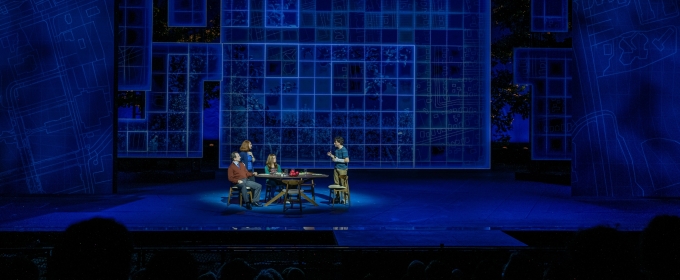 Michael Fabisch, Rob McClure, Jackie Burns and More in DEAR EVAN HANSEN at The Muny
The musical is now running through August 3.
Michael Fabisch, Rob McClure, Jackie Burns and More in DEAR EVAN HANSEN at The Muny
The musical is now running through August 3.
 Frankie Grande Visits STRANGER THINGS: THE FIRST SHADOW
He saw the show two days in a row this week, bringing his mother Joan to the show to meet the cast as well.
Frankie Grande Visits STRANGER THINGS: THE FIRST SHADOW
He saw the show two days in a row this week, bringing his mother Joan to the show to meet the cast as well.
 On the Opening Night Red Carpet for GINGER TWINSIES
Ginger Twinsies is running off-Broadway at the Orpheum Theatre.
On the Opening Night Red Carpet for GINGER TWINSIES
Ginger Twinsies is running off-Broadway at the Orpheum Theatre.
 First Look at ROLLING THUNDER Off-Broadway
Rolling Thunder will open July 24 at New World Stages.
First Look at ROLLING THUNDER Off-Broadway
Rolling Thunder will open July 24 at New World Stages.
 A PLAY ABOUT DAVID MAMET... Reading
Directed by Leslye Headland, the four-person cast featured Abbi Jacobson, Heléne Yorke, Billy Eichner and Paige Gilbert.
A PLAY ABOUT DAVID MAMET... Reading
Directed by Leslye Headland, the four-person cast featured Abbi Jacobson, Heléne Yorke, Billy Eichner and Paige Gilbert.
 Michael Fabisch, Rob McClure, Jackie Burns and More in DEAR EVAN HANSEN at The Muny
The musical is now running through August 3.
Michael Fabisch, Rob McClure, Jackie Burns and More in DEAR EVAN HANSEN at The Muny
The musical is now running through August 3.
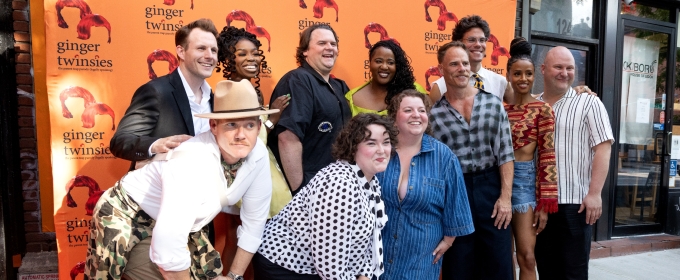 GINGER TWINSIES Company Celebrates Opening Night
Ginger Twinsies is running off-Broadway at the Orpheum Theatre.
GINGER TWINSIES Company Celebrates Opening Night
Ginger Twinsies is running off-Broadway at the Orpheum Theatre.
 On the Opening Night Red Carpet for GINGER TWINSIES
Ginger Twinsies is running off-Broadway at the Orpheum Theatre.
On the Opening Night Red Carpet for GINGER TWINSIES
Ginger Twinsies is running off-Broadway at the Orpheum Theatre.
 First Look at ROLLING THUNDER Off-Broadway
Rolling Thunder will open July 24 at New World Stages.
First Look at ROLLING THUNDER Off-Broadway
Rolling Thunder will open July 24 at New World Stages.
 A PLAY ABOUT DAVID MAMET... Reading
Directed by Leslye Headland, the four-person cast featured Abbi Jacobson, Heléne Yorke, Billy Eichner and Paige Gilbert.
A PLAY ABOUT DAVID MAMET... Reading
Directed by Leslye Headland, the four-person cast featured Abbi Jacobson, Heléne Yorke, Billy Eichner and Paige Gilbert.
 Michael Fabisch, Rob McClure, Jackie Burns and More in DEAR EVAN HANSEN at The Muny
The musical is now running through August 3.
Michael Fabisch, Rob McClure, Jackie Burns and More in DEAR EVAN HANSEN at The Muny
The musical is now running through August 3.
 GINGER TWINSIES Company Celebrates Opening Night
Ginger Twinsies is running off-Broadway at the Orpheum Theatre.
GINGER TWINSIES Company Celebrates Opening Night
Ginger Twinsies is running off-Broadway at the Orpheum Theatre.
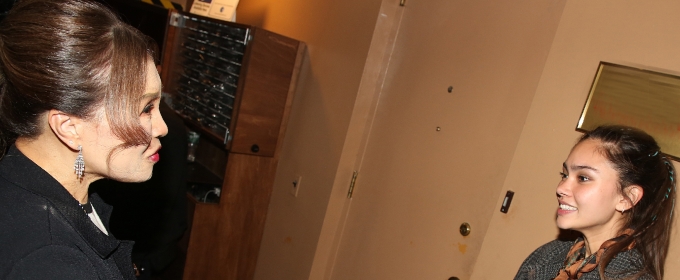 Princess of Thailand Visits HADESTOWN on Broadway
She attended the show to visit Hadestown cast member Myra Molloy, who plays Eurydice and is originally from Thailand. See photos here!
Princess of Thailand Visits HADESTOWN on Broadway
She attended the show to visit Hadestown cast member Myra Molloy, who plays Eurydice and is originally from Thailand. See photos here!
 First Look at ROLLING THUNDER Off-Broadway
Rolling Thunder will open July 24 at New World Stages.
First Look at ROLLING THUNDER Off-Broadway
Rolling Thunder will open July 24 at New World Stages.
 A PLAY ABOUT DAVID MAMET... Reading
Directed by Leslye Headland, the four-person cast featured Abbi Jacobson, Heléne Yorke, Billy Eichner and Paige Gilbert.
A PLAY ABOUT DAVID MAMET... Reading
Directed by Leslye Headland, the four-person cast featured Abbi Jacobson, Heléne Yorke, Billy Eichner and Paige Gilbert.
 Michael Fabisch, Rob McClure, Jackie Burns and More in DEAR EVAN HANSEN at The Muny
The musical is now running through August 3.
Michael Fabisch, Rob McClure, Jackie Burns and More in DEAR EVAN HANSEN at The Muny
The musical is now running through August 3.
 GINGER TWINSIES Company Celebrates Opening Night
Ginger Twinsies is running off-Broadway at the Orpheum Theatre.
GINGER TWINSIES Company Celebrates Opening Night
Ginger Twinsies is running off-Broadway at the Orpheum Theatre.
 Princess of Thailand Visits HADESTOWN on Broadway
She attended the show to visit Hadestown cast member Myra Molloy, who plays Eurydice and is originally from Thailand. See photos here!
Princess of Thailand Visits HADESTOWN on Broadway
She attended the show to visit Hadestown cast member Myra Molloy, who plays Eurydice and is originally from Thailand. See photos here!
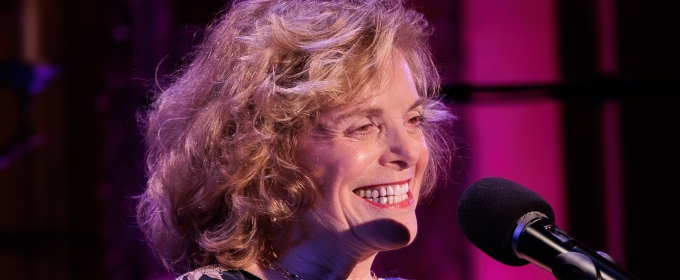 Broadway's Carole Demas Makes Solo Cabaret Debut in FIREFLY at 54 Below
The unforgettable show, celebrating the star's long Broadway and TV career, returns 9/6
Broadway's Carole Demas Makes Solo Cabaret Debut in FIREFLY at 54 Below
The unforgettable show, celebrating the star's long Broadway and TV career, returns 9/6
 A PLAY ABOUT DAVID MAMET... Reading
Directed by Leslye Headland, the four-person cast featured Abbi Jacobson, Heléne Yorke, Billy Eichner and Paige Gilbert.
A PLAY ABOUT DAVID MAMET... Reading
Directed by Leslye Headland, the four-person cast featured Abbi Jacobson, Heléne Yorke, Billy Eichner and Paige Gilbert.
 Michael Fabisch, Rob McClure, Jackie Burns and More in DEAR EVAN HANSEN at The Muny
The musical is now running through August 3.
Michael Fabisch, Rob McClure, Jackie Burns and More in DEAR EVAN HANSEN at The Muny
The musical is now running through August 3.
 GINGER TWINSIES Company Celebrates Opening Night
Ginger Twinsies is running off-Broadway at the Orpheum Theatre.
GINGER TWINSIES Company Celebrates Opening Night
Ginger Twinsies is running off-Broadway at the Orpheum Theatre.
 Princess of Thailand Visits HADESTOWN on Broadway
She attended the show to visit Hadestown cast member Myra Molloy, who plays Eurydice and is originally from Thailand. See photos here!
Princess of Thailand Visits HADESTOWN on Broadway
She attended the show to visit Hadestown cast member Myra Molloy, who plays Eurydice and is originally from Thailand. See photos here!
 Broadway's Carole Demas Makes Solo Cabaret Debut in FIREFLY at 54 Below
The unforgettable show, celebrating the star's long Broadway and TV career, returns 9/6
Broadway's Carole Demas Makes Solo Cabaret Debut in FIREFLY at 54 Below
The unforgettable show, celebrating the star's long Broadway and TV career, returns 9/6
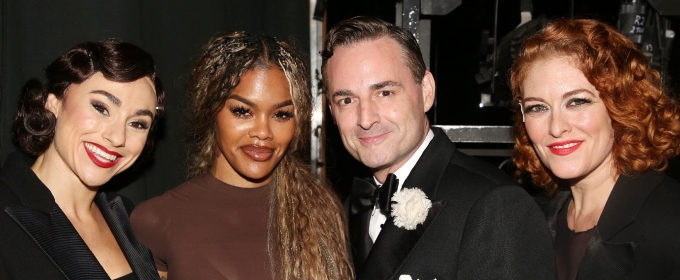 Teyana Taylor & Aaron Pierre Visit CHICAGO on Broadway
Chicago is currently running on Broadway at the Ambassador Theatre.
Teyana Taylor & Aaron Pierre Visit CHICAGO on Broadway
Chicago is currently running on Broadway at the Ambassador Theatre.
 Michael Fabisch, Rob McClure, Jackie Burns and More in DEAR EVAN HANSEN at The Muny
The musical is now running through August 3.
Michael Fabisch, Rob McClure, Jackie Burns and More in DEAR EVAN HANSEN at The Muny
The musical is now running through August 3.
 GINGER TWINSIES Company Celebrates Opening Night
Ginger Twinsies is running off-Broadway at the Orpheum Theatre.
GINGER TWINSIES Company Celebrates Opening Night
Ginger Twinsies is running off-Broadway at the Orpheum Theatre.
 Princess of Thailand Visits HADESTOWN on Broadway
She attended the show to visit Hadestown cast member Myra Molloy, who plays Eurydice and is originally from Thailand. See photos here!
Princess of Thailand Visits HADESTOWN on Broadway
She attended the show to visit Hadestown cast member Myra Molloy, who plays Eurydice and is originally from Thailand. See photos here!
 Broadway's Carole Demas Makes Solo Cabaret Debut in FIREFLY at 54 Below
The unforgettable show, celebrating the star's long Broadway and TV career, returns 9/6
Broadway's Carole Demas Makes Solo Cabaret Debut in FIREFLY at 54 Below
The unforgettable show, celebrating the star's long Broadway and TV career, returns 9/6
 Teyana Taylor & Aaron Pierre Visit CHICAGO on Broadway
Chicago is currently running on Broadway at the Ambassador Theatre.
Teyana Taylor & Aaron Pierre Visit CHICAGO on Broadway
Chicago is currently running on Broadway at the Ambassador Theatre.
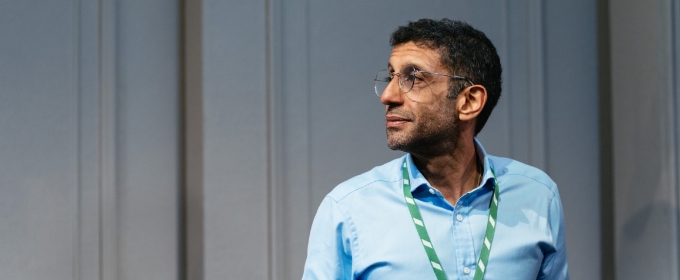 Adeel Akhtar and More in THE ESTATE at the National Theatre
The Estate will run in the Dorfman theatre until 23 August 2025.
Adeel Akhtar and More in THE ESTATE at the National Theatre
The Estate will run in the Dorfman theatre until 23 August 2025.
 GINGER TWINSIES Company Celebrates Opening Night
Ginger Twinsies is running off-Broadway at the Orpheum Theatre.
GINGER TWINSIES Company Celebrates Opening Night
Ginger Twinsies is running off-Broadway at the Orpheum Theatre.
 Princess of Thailand Visits HADESTOWN on Broadway
She attended the show to visit Hadestown cast member Myra Molloy, who plays Eurydice and is originally from Thailand. See photos here!
Princess of Thailand Visits HADESTOWN on Broadway
She attended the show to visit Hadestown cast member Myra Molloy, who plays Eurydice and is originally from Thailand. See photos here!
 Broadway's Carole Demas Makes Solo Cabaret Debut in FIREFLY at 54 Below
The unforgettable show, celebrating the star's long Broadway and TV career, returns 9/6
Broadway's Carole Demas Makes Solo Cabaret Debut in FIREFLY at 54 Below
The unforgettable show, celebrating the star's long Broadway and TV career, returns 9/6
 Teyana Taylor & Aaron Pierre Visit CHICAGO on Broadway
Chicago is currently running on Broadway at the Ambassador Theatre.
Teyana Taylor & Aaron Pierre Visit CHICAGO on Broadway
Chicago is currently running on Broadway at the Ambassador Theatre.
 Adeel Akhtar and More in THE ESTATE at the National Theatre
The Estate will run in the Dorfman theatre until 23 August 2025.
Adeel Akhtar and More in THE ESTATE at the National Theatre
The Estate will run in the Dorfman theatre until 23 August 2025.
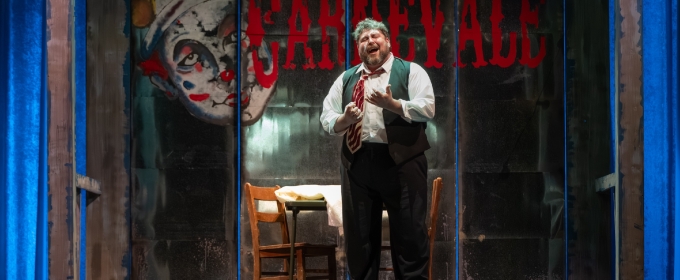 Review: 'JOSEPHINE' & 'PAGLIACCI' at Union Avenue Opera
runs through August 2
Review: 'JOSEPHINE' & 'PAGLIACCI' at Union Avenue Opera
runs through August 2
 Princess of Thailand Visits HADESTOWN on Broadway
She attended the show to visit Hadestown cast member Myra Molloy, who plays Eurydice and is originally from Thailand. See photos here!
Princess of Thailand Visits HADESTOWN on Broadway
She attended the show to visit Hadestown cast member Myra Molloy, who plays Eurydice and is originally from Thailand. See photos here!
 Broadway's Carole Demas Makes Solo Cabaret Debut in FIREFLY at 54 Below
The unforgettable show, celebrating the star's long Broadway and TV career, returns 9/6
Broadway's Carole Demas Makes Solo Cabaret Debut in FIREFLY at 54 Below
The unforgettable show, celebrating the star's long Broadway and TV career, returns 9/6
 Teyana Taylor & Aaron Pierre Visit CHICAGO on Broadway
Chicago is currently running on Broadway at the Ambassador Theatre.
Teyana Taylor & Aaron Pierre Visit CHICAGO on Broadway
Chicago is currently running on Broadway at the Ambassador Theatre.
 Adeel Akhtar and More in THE ESTATE at the National Theatre
The Estate will run in the Dorfman theatre until 23 August 2025.
Adeel Akhtar and More in THE ESTATE at the National Theatre
The Estate will run in the Dorfman theatre until 23 August 2025.
 Review: 'JOSEPHINE' & 'PAGLIACCI' at Union Avenue Opera
runs through August 2
Review: 'JOSEPHINE' & 'PAGLIACCI' at Union Avenue Opera
runs through August 2
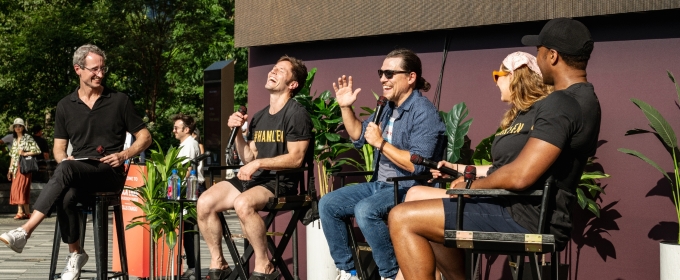 HAMILTON Cast Joins Talkback at Hudson Yards
Events are all free and open to the public.
HAMILTON Cast Joins Talkback at Hudson Yards
Events are all free and open to the public.
 Broadway's Carole Demas Makes Solo Cabaret Debut in FIREFLY at 54 Below
The unforgettable show, celebrating the star's long Broadway and TV career, returns 9/6
Broadway's Carole Demas Makes Solo Cabaret Debut in FIREFLY at 54 Below
The unforgettable show, celebrating the star's long Broadway and TV career, returns 9/6
 Teyana Taylor & Aaron Pierre Visit CHICAGO on Broadway
Chicago is currently running on Broadway at the Ambassador Theatre.
Teyana Taylor & Aaron Pierre Visit CHICAGO on Broadway
Chicago is currently running on Broadway at the Ambassador Theatre.
 Adeel Akhtar and More in THE ESTATE at the National Theatre
The Estate will run in the Dorfman theatre until 23 August 2025.
Adeel Akhtar and More in THE ESTATE at the National Theatre
The Estate will run in the Dorfman theatre until 23 August 2025.
 Review: 'JOSEPHINE' & 'PAGLIACCI' at Union Avenue Opera
runs through August 2
Review: 'JOSEPHINE' & 'PAGLIACCI' at Union Avenue Opera
runs through August 2
 HAMILTON Cast Joins Talkback at Hudson Yards
Events are all free and open to the public.
HAMILTON Cast Joins Talkback at Hudson Yards
Events are all free and open to the public.
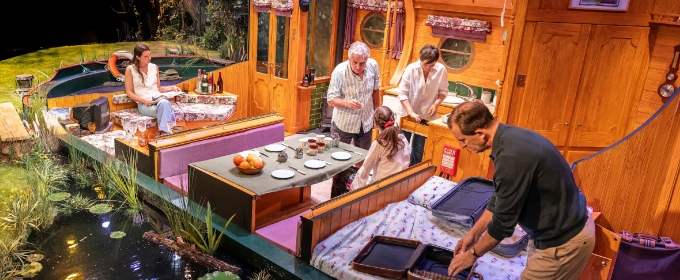 DON'T ROCK THE BOAT at the The Mill at Sonning Theatre
Performances will run through September 6.
DON'T ROCK THE BOAT at the The Mill at Sonning Theatre
Performances will run through September 6.
 Teyana Taylor & Aaron Pierre Visit CHICAGO on Broadway
Chicago is currently running on Broadway at the Ambassador Theatre.
Teyana Taylor & Aaron Pierre Visit CHICAGO on Broadway
Chicago is currently running on Broadway at the Ambassador Theatre.
 Adeel Akhtar and More in THE ESTATE at the National Theatre
The Estate will run in the Dorfman theatre until 23 August 2025.
Adeel Akhtar and More in THE ESTATE at the National Theatre
The Estate will run in the Dorfman theatre until 23 August 2025.
 Review: 'JOSEPHINE' & 'PAGLIACCI' at Union Avenue Opera
runs through August 2
Review: 'JOSEPHINE' & 'PAGLIACCI' at Union Avenue Opera
runs through August 2
 HAMILTON Cast Joins Talkback at Hudson Yards
Events are all free and open to the public.
HAMILTON Cast Joins Talkback at Hudson Yards
Events are all free and open to the public.
 DON'T ROCK THE BOAT at the The Mill at Sonning Theatre
Performances will run through September 6.
DON'T ROCK THE BOAT at the The Mill at Sonning Theatre
Performances will run through September 6.
 Photo: First Look at DOLLY: A TRUE ORIGINAL MUSICAL
Get a First look at Carrie St. Louis as ‘Dolly,’ Katie Rose Clarke as ‘Dolly Parton,’ and Quinn Titcomb as ‘Little Dolly.’
Photo: First Look at DOLLY: A TRUE ORIGINAL MUSICAL
Get a First look at Carrie St. Louis as ‘Dolly,’ Katie Rose Clarke as ‘Dolly Parton,’ and Quinn Titcomb as ‘Little Dolly.’
 Adeel Akhtar and More in THE ESTATE at the National Theatre
The Estate will run in the Dorfman theatre until 23 August 2025.
Adeel Akhtar and More in THE ESTATE at the National Theatre
The Estate will run in the Dorfman theatre until 23 August 2025.
 Review: 'JOSEPHINE' & 'PAGLIACCI' at Union Avenue Opera
runs through August 2
Review: 'JOSEPHINE' & 'PAGLIACCI' at Union Avenue Opera
runs through August 2
 HAMILTON Cast Joins Talkback at Hudson Yards
Events are all free and open to the public.
HAMILTON Cast Joins Talkback at Hudson Yards
Events are all free and open to the public.
 DON'T ROCK THE BOAT at the The Mill at Sonning Theatre
Performances will run through September 6.
DON'T ROCK THE BOAT at the The Mill at Sonning Theatre
Performances will run through September 6.
 Photo: First Look at DOLLY: A TRUE ORIGINAL MUSICAL
Get a First look at Carrie St. Louis as ‘Dolly,’ Katie Rose Clarke as ‘Dolly Parton,’ and Quinn Titcomb as ‘Little Dolly.’
Photo: First Look at DOLLY: A TRUE ORIGINAL MUSICAL
Get a First look at Carrie St. Louis as ‘Dolly,’ Katie Rose Clarke as ‘Dolly Parton,’ and Quinn Titcomb as ‘Little Dolly.’
 First Look at EVITA at The Muny
Performances run July 18-24.
First Look at EVITA at The Muny
Performances run July 18-24.
 Review: 'JOSEPHINE' & 'PAGLIACCI' at Union Avenue Opera
runs through August 2
Review: 'JOSEPHINE' & 'PAGLIACCI' at Union Avenue Opera
runs through August 2
 HAMILTON Cast Joins Talkback at Hudson Yards
Events are all free and open to the public.
HAMILTON Cast Joins Talkback at Hudson Yards
Events are all free and open to the public.
 DON'T ROCK THE BOAT at the The Mill at Sonning Theatre
Performances will run through September 6.
DON'T ROCK THE BOAT at the The Mill at Sonning Theatre
Performances will run through September 6.
 Photo: First Look at DOLLY: A TRUE ORIGINAL MUSICAL
Get a First look at Carrie St. Louis as ‘Dolly,’ Katie Rose Clarke as ‘Dolly Parton,’ and Quinn Titcomb as ‘Little Dolly.’
Photo: First Look at DOLLY: A TRUE ORIGINAL MUSICAL
Get a First look at Carrie St. Louis as ‘Dolly,’ Katie Rose Clarke as ‘Dolly Parton,’ and Quinn Titcomb as ‘Little Dolly.’
 First Look at EVITA at The Muny
Performances run July 18-24.
First Look at EVITA at The Muny
Performances run July 18-24.
 Scherzinger and the Cast of SUNSET BLVD. Take Final Bow
The show played its final performance on July 20 at the St. James Theatre following 20 previews and 312 regular performances.
Scherzinger and the Cast of SUNSET BLVD. Take Final Bow
The show played its final performance on July 20 at the St. James Theatre following 20 previews and 312 regular performances.
 HAMILTON Cast Joins Talkback at Hudson Yards
Events are all free and open to the public.
HAMILTON Cast Joins Talkback at Hudson Yards
Events are all free and open to the public.
 DON'T ROCK THE BOAT at the The Mill at Sonning Theatre
Performances will run through September 6.
DON'T ROCK THE BOAT at the The Mill at Sonning Theatre
Performances will run through September 6.
 Photo: First Look at DOLLY: A TRUE ORIGINAL MUSICAL
Get a First look at Carrie St. Louis as ‘Dolly,’ Katie Rose Clarke as ‘Dolly Parton,’ and Quinn Titcomb as ‘Little Dolly.’
Photo: First Look at DOLLY: A TRUE ORIGINAL MUSICAL
Get a First look at Carrie St. Louis as ‘Dolly,’ Katie Rose Clarke as ‘Dolly Parton,’ and Quinn Titcomb as ‘Little Dolly.’
 First Look at EVITA at The Muny
Performances run July 18-24.
First Look at EVITA at The Muny
Performances run July 18-24.
 Scherzinger and the Cast of SUNSET BLVD. Take Final Bow
The show played its final performance on July 20 at the St. James Theatre following 20 previews and 312 regular performances.
Scherzinger and the Cast of SUNSET BLVD. Take Final Bow
The show played its final performance on July 20 at the St. James Theatre following 20 previews and 312 regular performances.
 Billy Porter and Marisha Wallace in CABARET
Porter and Wallace begin performances on Tuesday, July 22.
Billy Porter and Marisha Wallace in CABARET
Porter and Wallace begin performances on Tuesday, July 22.
 DON'T ROCK THE BOAT at the The Mill at Sonning Theatre
Performances will run through September 6.
DON'T ROCK THE BOAT at the The Mill at Sonning Theatre
Performances will run through September 6.
 Photo: First Look at DOLLY: A TRUE ORIGINAL MUSICAL
Get a First look at Carrie St. Louis as ‘Dolly,’ Katie Rose Clarke as ‘Dolly Parton,’ and Quinn Titcomb as ‘Little Dolly.’
Photo: First Look at DOLLY: A TRUE ORIGINAL MUSICAL
Get a First look at Carrie St. Louis as ‘Dolly,’ Katie Rose Clarke as ‘Dolly Parton,’ and Quinn Titcomb as ‘Little Dolly.’
 First Look at EVITA at The Muny
Performances run July 18-24.
First Look at EVITA at The Muny
Performances run July 18-24.
 Scherzinger and the Cast of SUNSET BLVD. Take Final Bow
The show played its final performance on July 20 at the St. James Theatre following 20 previews and 312 regular performances.
Scherzinger and the Cast of SUNSET BLVD. Take Final Bow
The show played its final performance on July 20 at the St. James Theatre following 20 previews and 312 regular performances.
 Billy Porter and Marisha Wallace in CABARET
Porter and Wallace begin performances on Tuesday, July 22.
Billy Porter and Marisha Wallace in CABARET
Porter and Wallace begin performances on Tuesday, July 22.
 Robyn Hurder, Andrew Durand, and More Star in HIGH SOCIETY at Ogunquit Playhouse
The production runs July 24 through August 23 in Ogunquit, Maine.
Robyn Hurder, Andrew Durand, and More Star in HIGH SOCIETY at Ogunquit Playhouse
The production runs July 24 through August 23 in Ogunquit, Maine.
Industry
Get Broadway's #1 Newsletter

West End
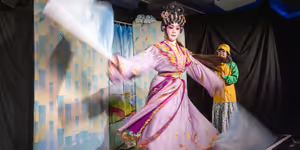
EDINBURGH 2025: DIC DIC CHANG CHANG PLAYGROUND Q&A
Cantonese Opera x Children's Interactive Theatre: Dic Dic Chang Chang Playground runs at Edfringe 1 - 9 August 2025
Cantonese Opera x Children's Interactive Theatre: Dic Dic Chang Chang Playground runs at Edfringe 1 - 9 August 2025
New York City
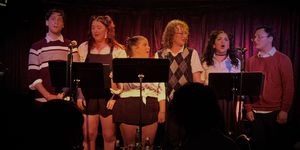
Review: Fidelity Theatricals Brings RIDE THE CYCLONE to Life at Don't Tell Mama
Big voices, dark comedy, and a trip beyond the grave in this 7/25 concert staging
Big voices, dark comedy, and a trip beyond the grave in this 7/25 concert staging
United States
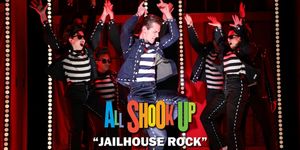
Video: 'Jailhouse Rock' from Goodspeed's ALL SHOOK UP
The production is currently running at the The Goodspeed in East Haddam, CT through August 24, 2025.
The production is currently running at the The Goodspeed in East Haddam, CT through August 24, 2025.
International

Video: THE LION KING Tour Sets Up for Calgary Engagement
Performances will run through August 17, 2025.
Performances will run through August 17, 2025.


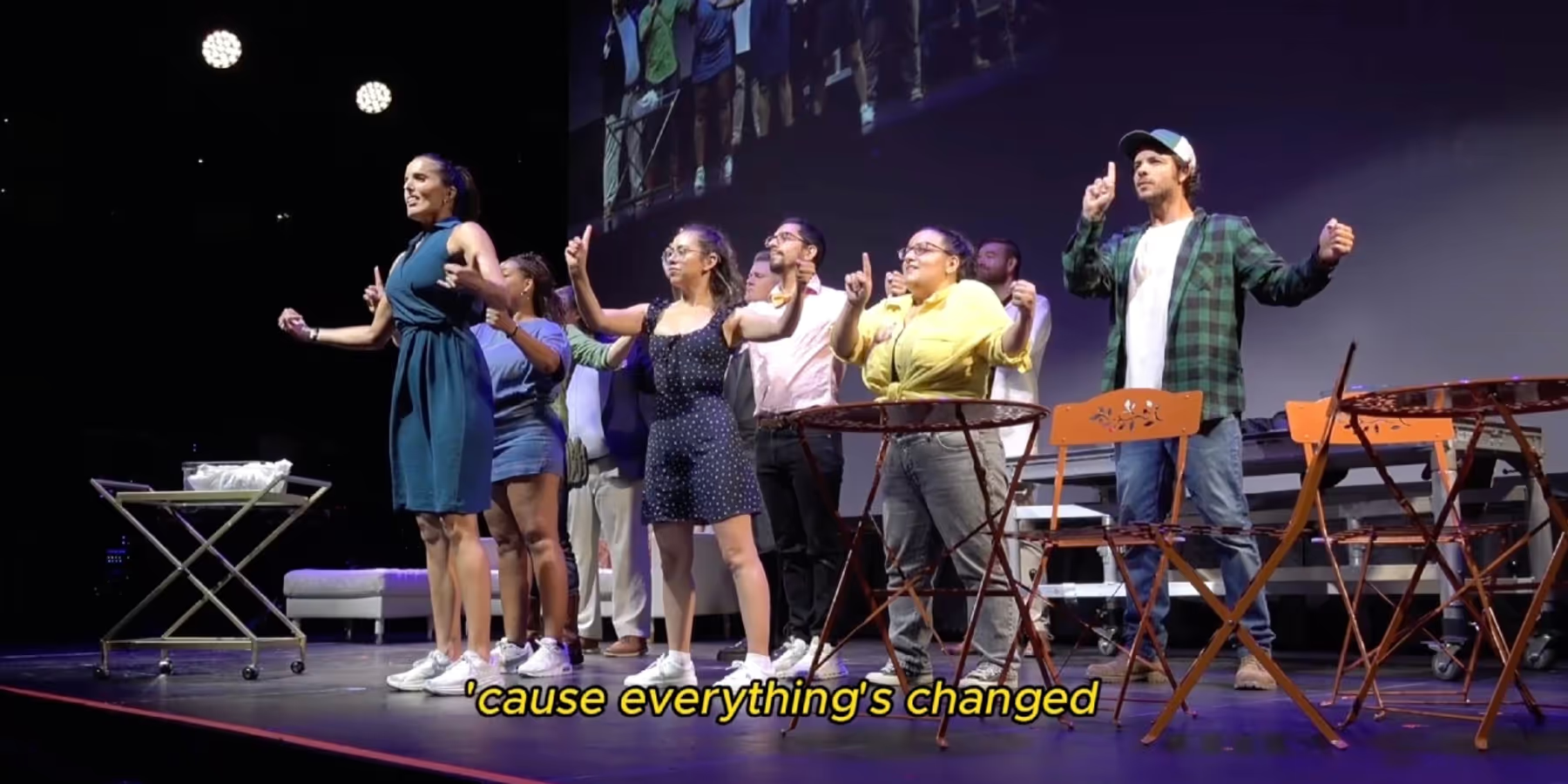
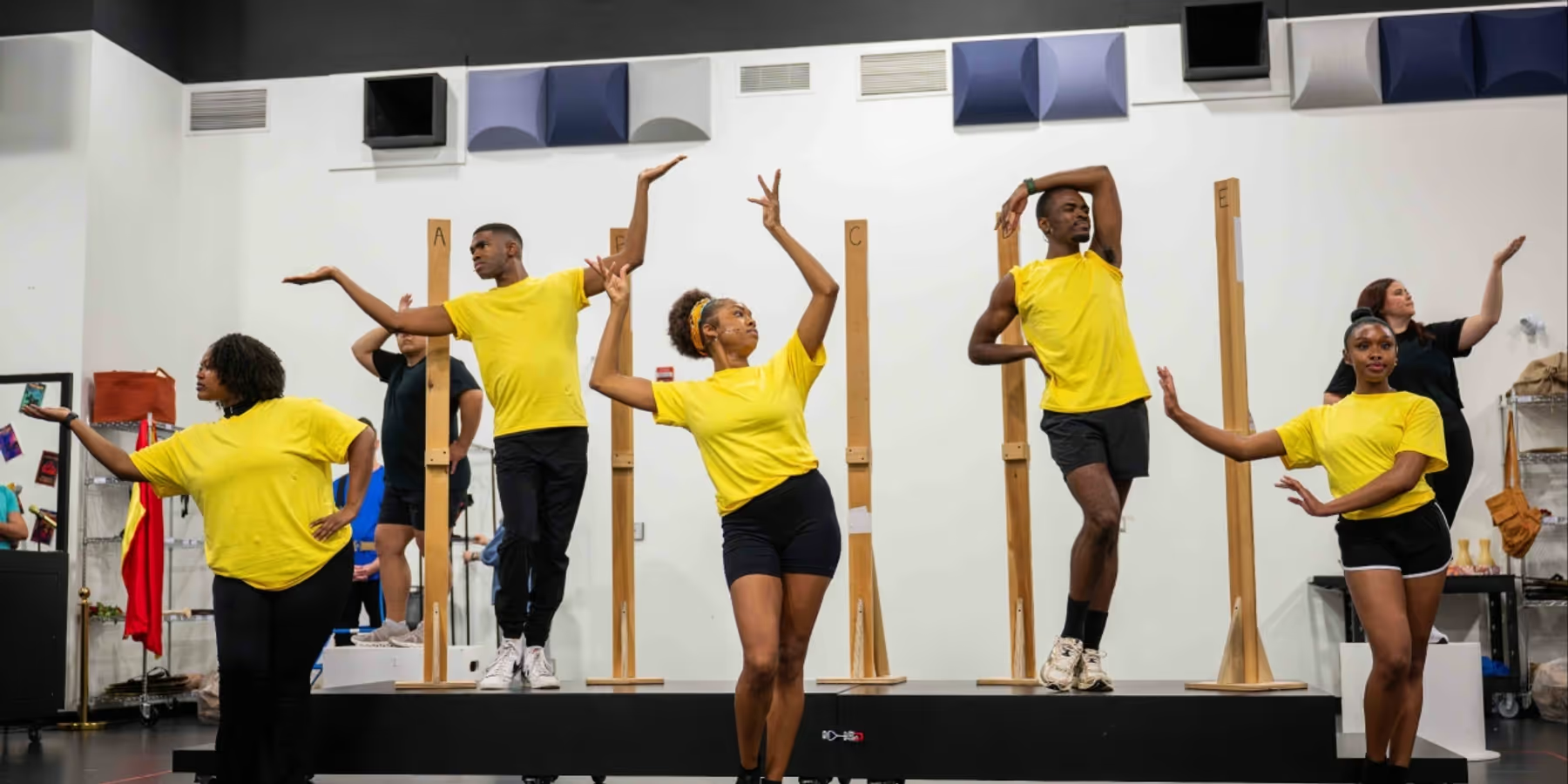
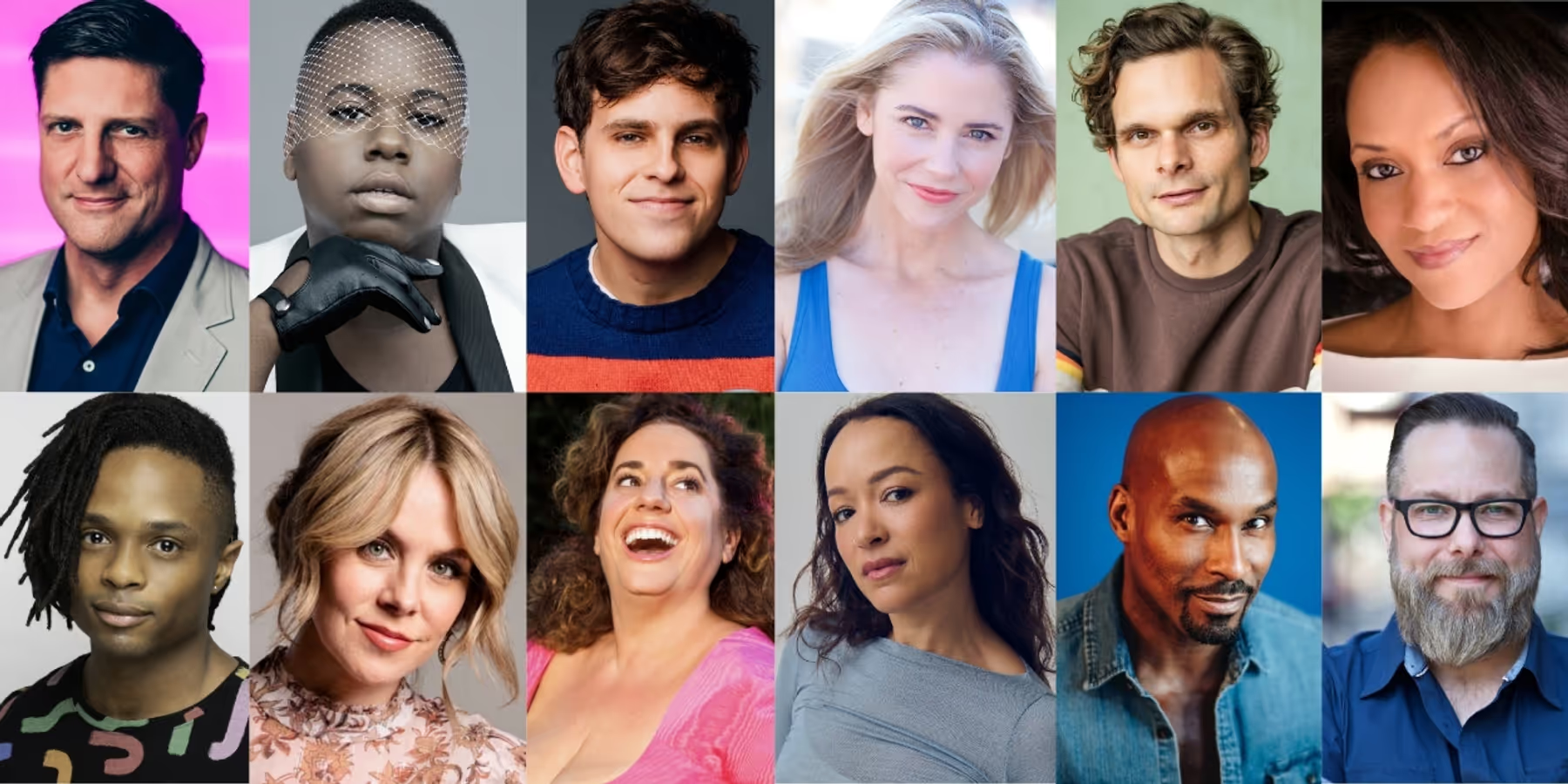
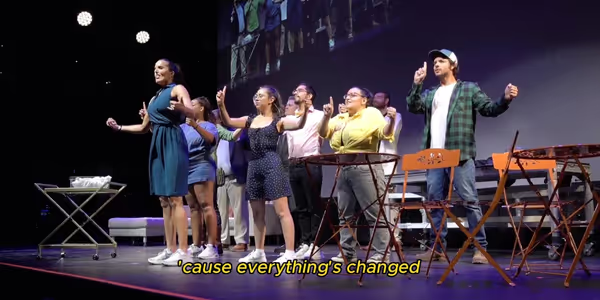
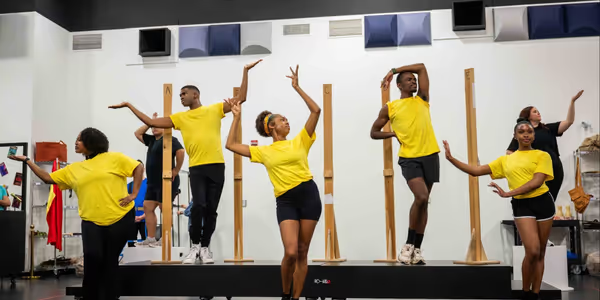
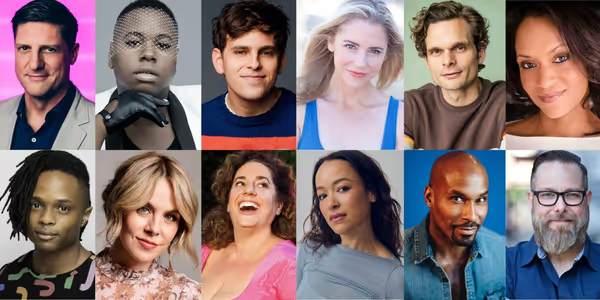
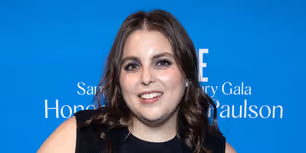
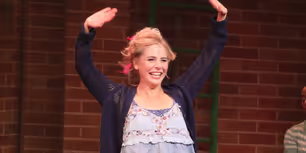
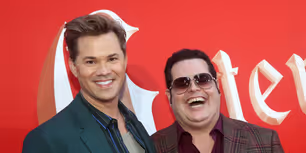

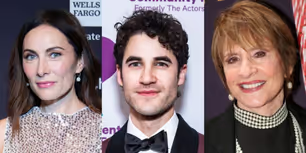
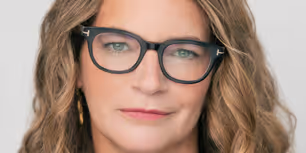
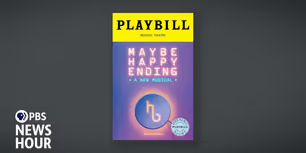
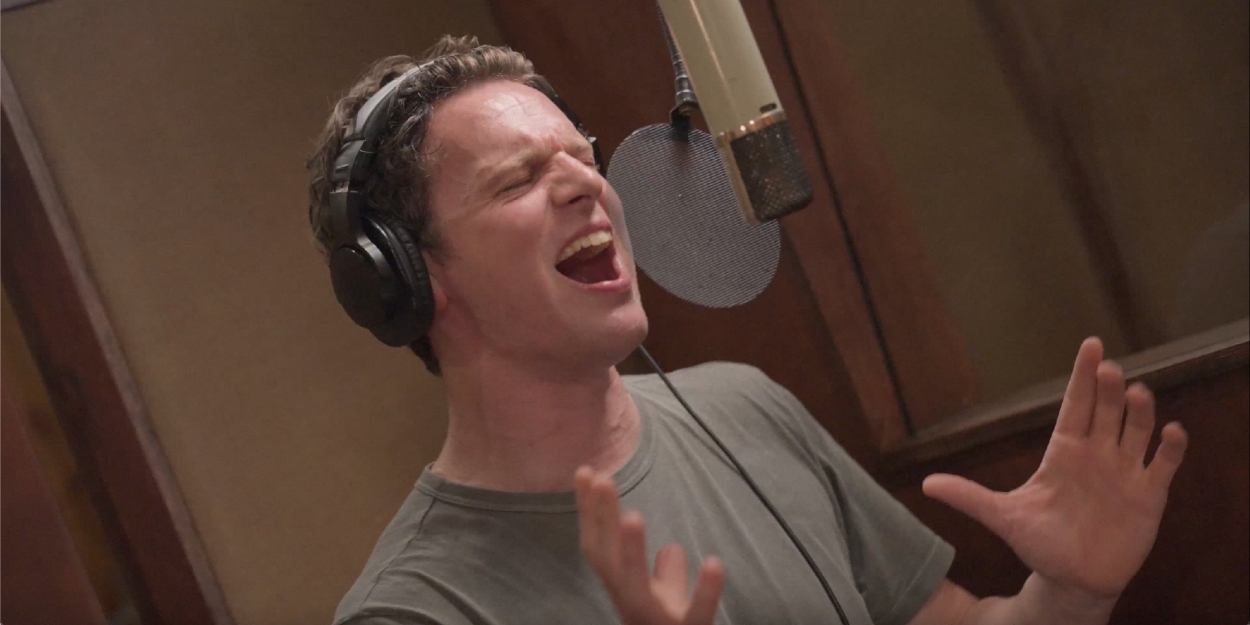
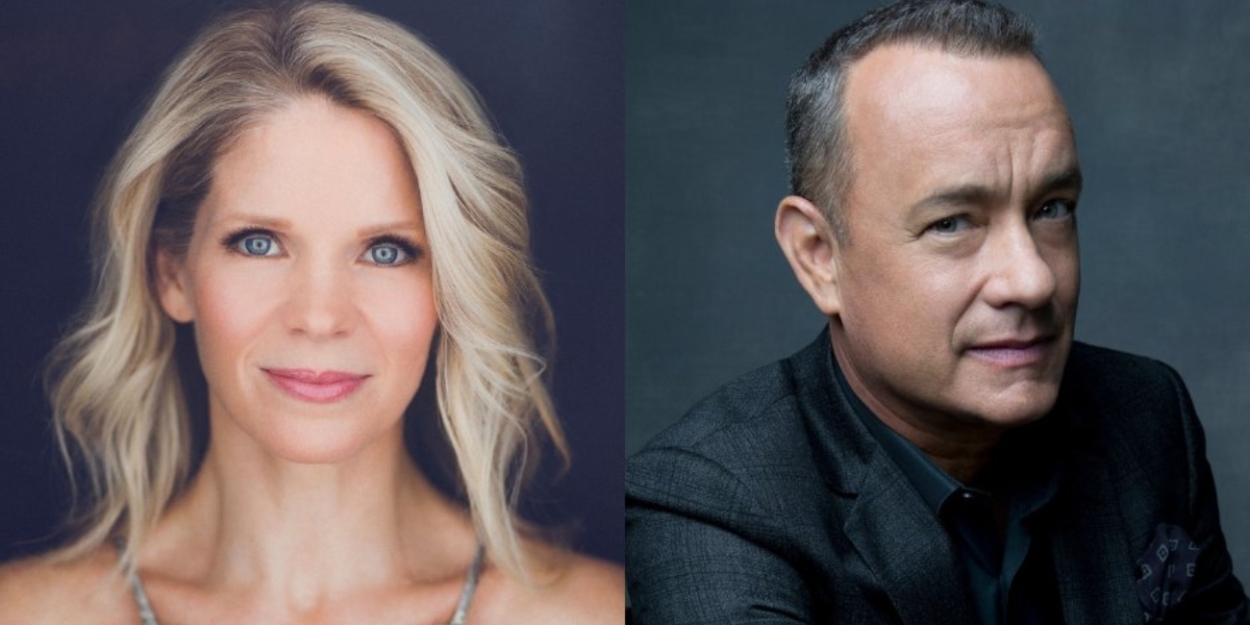
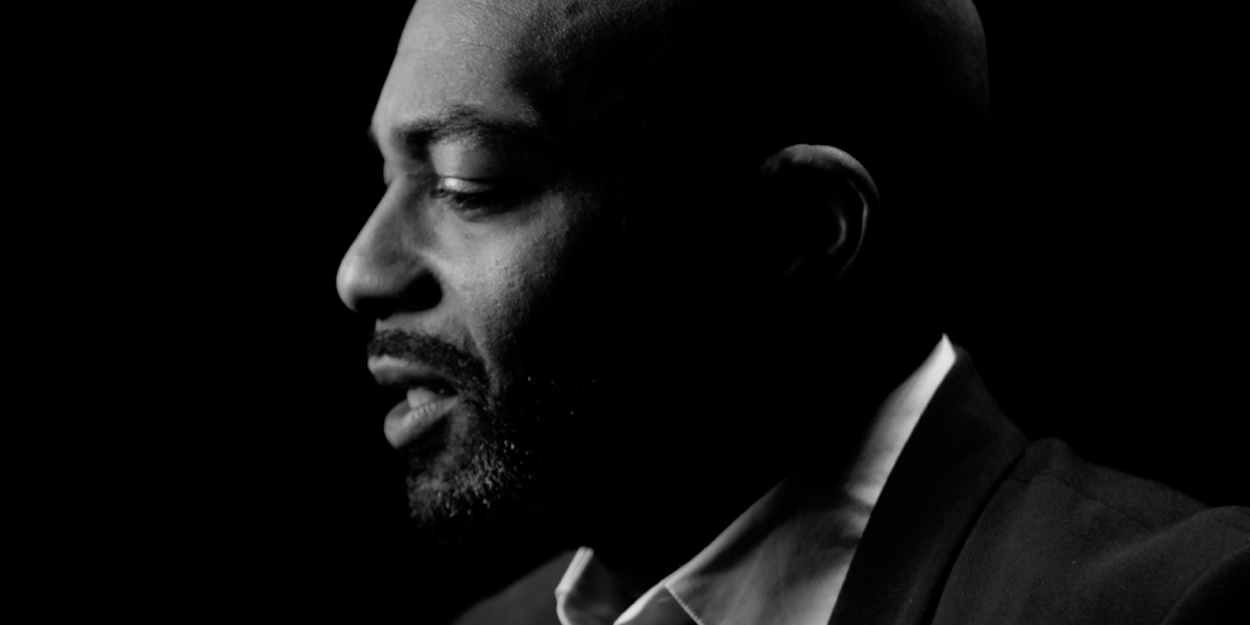
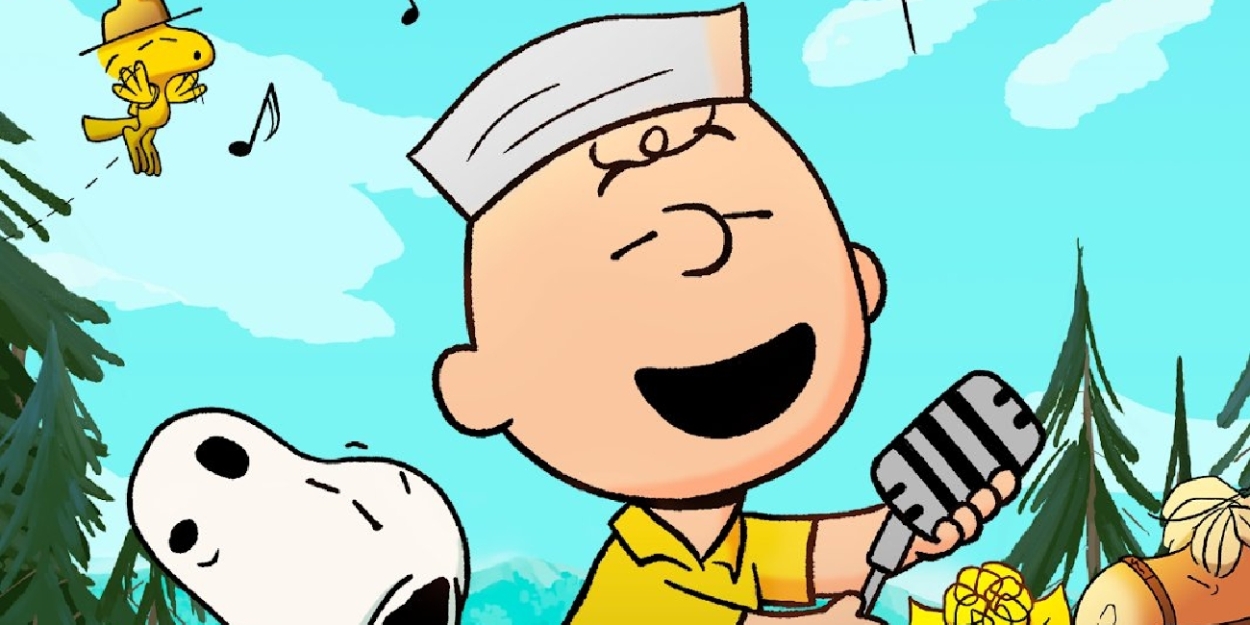
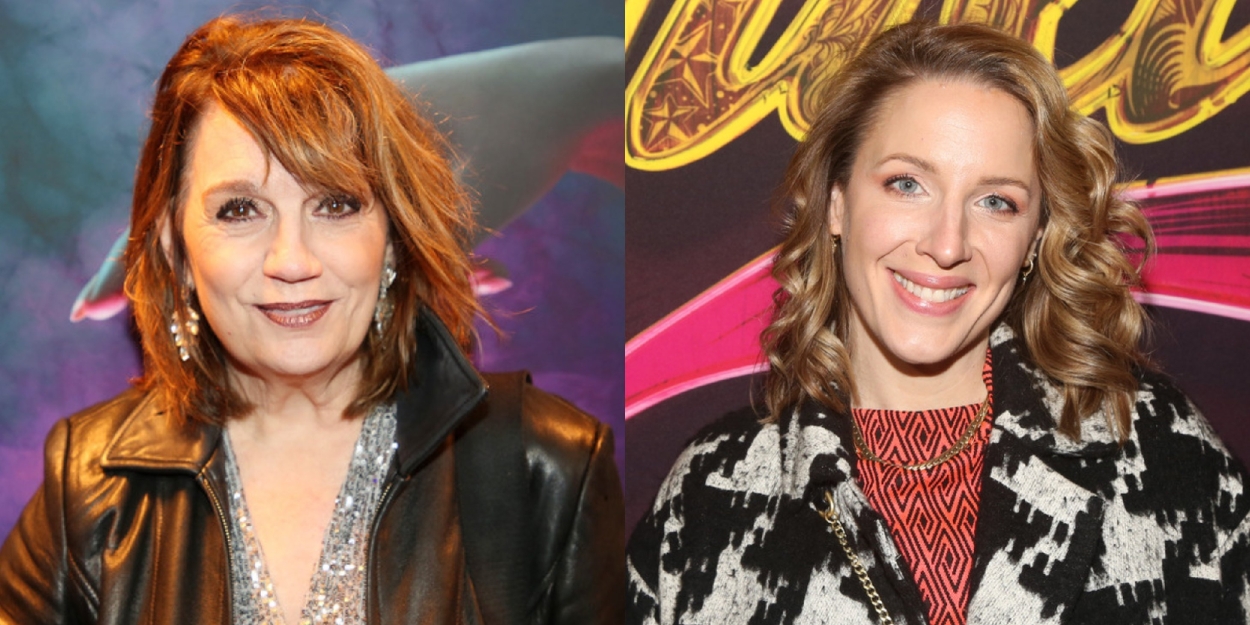
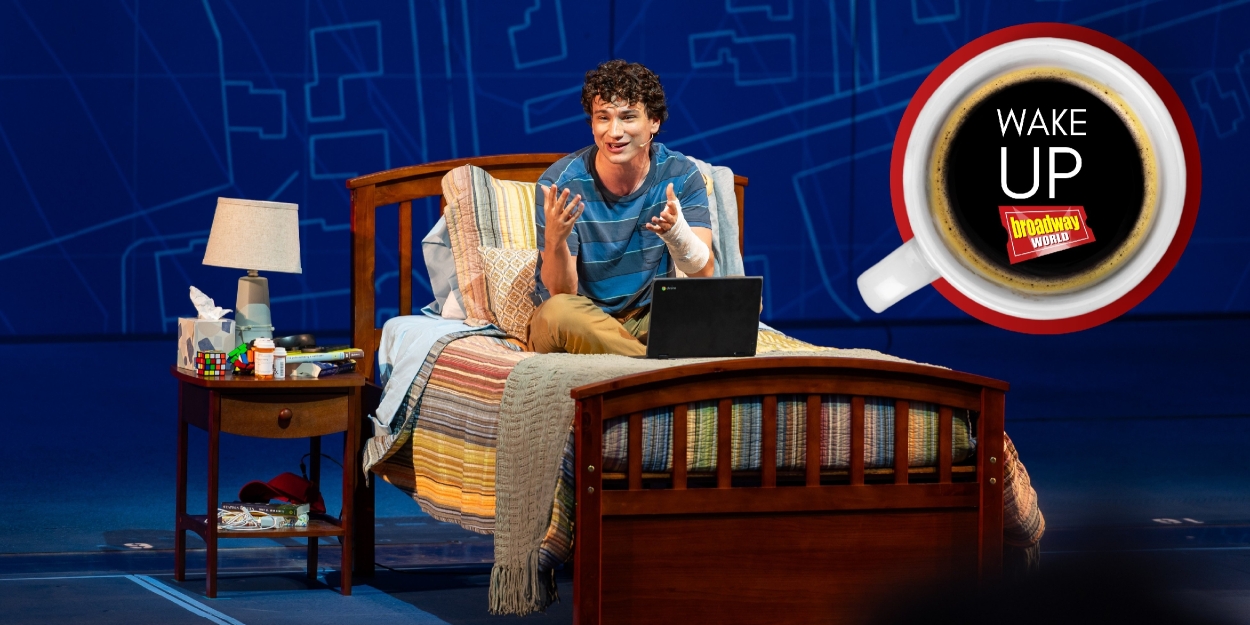
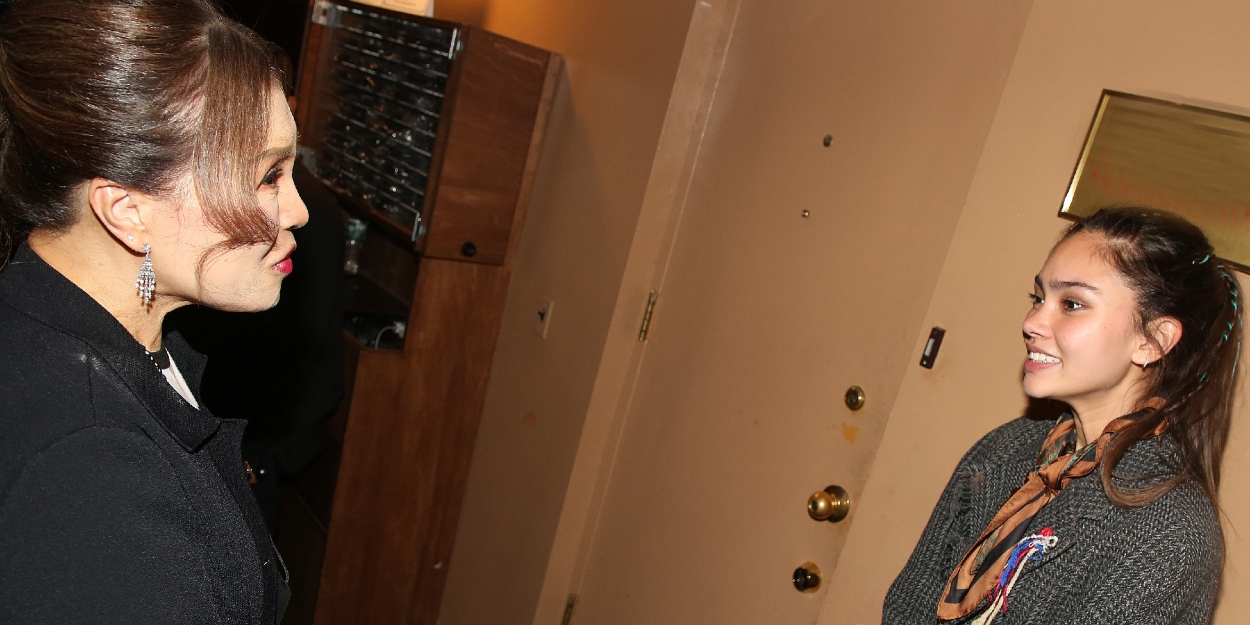
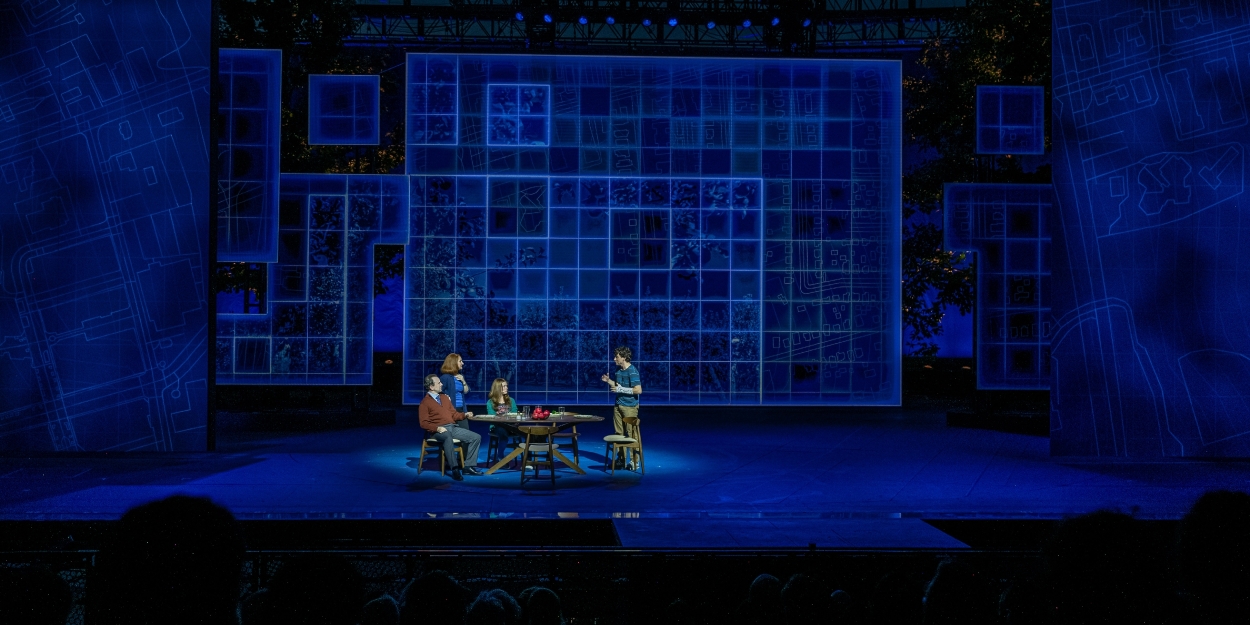
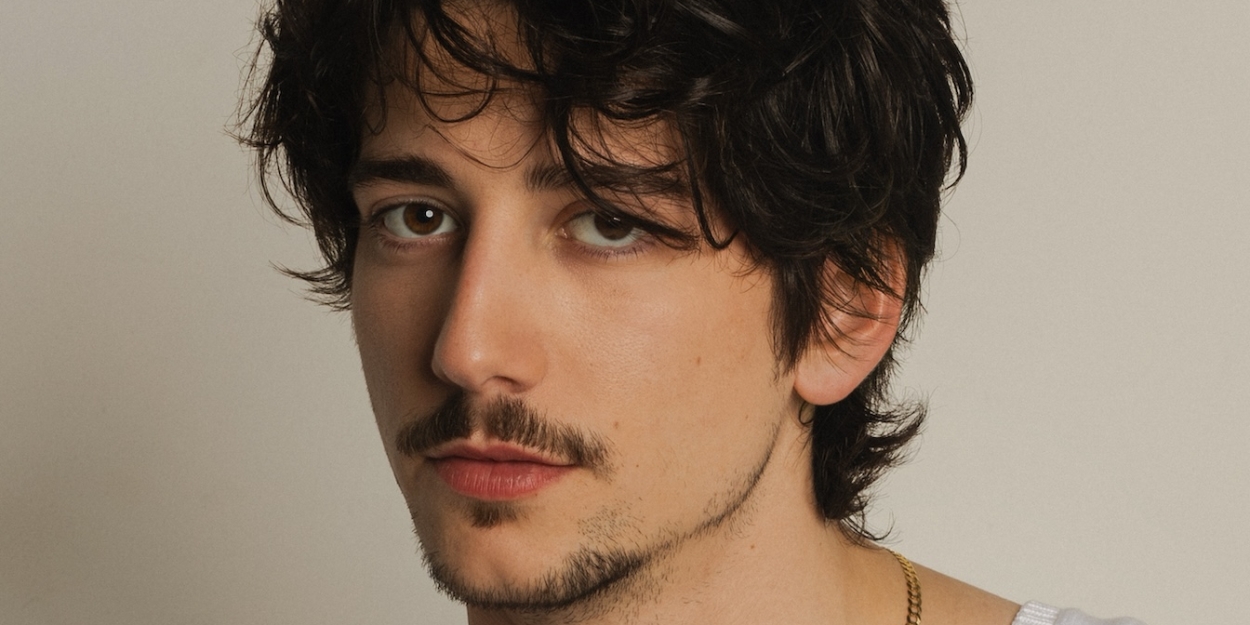
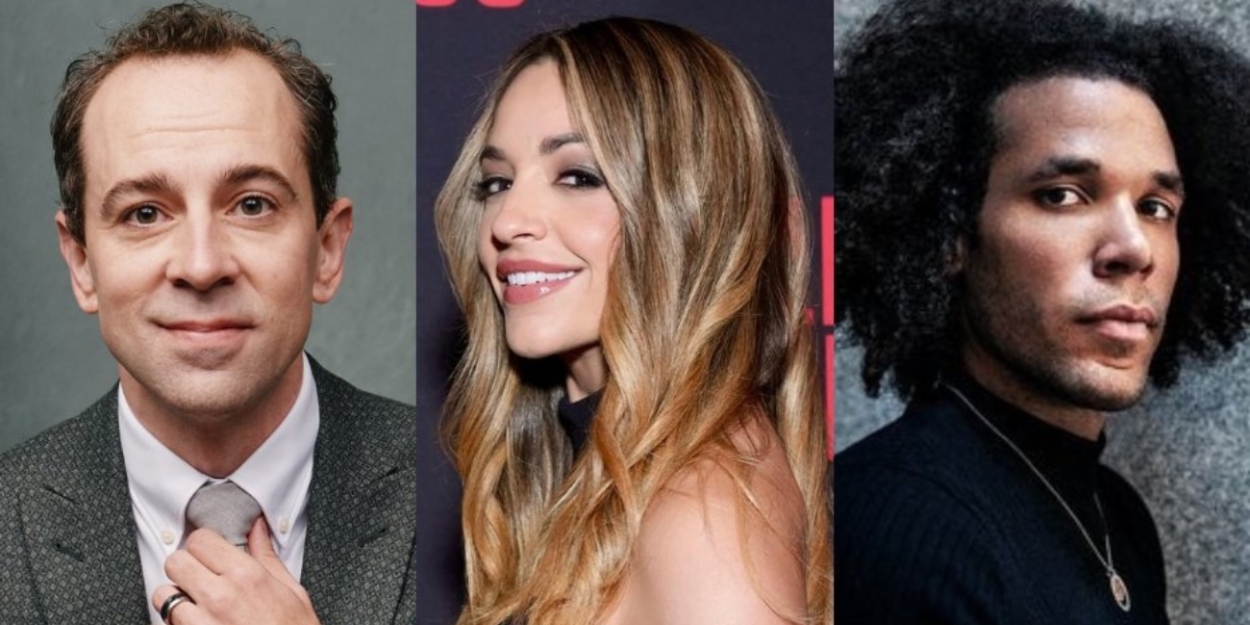
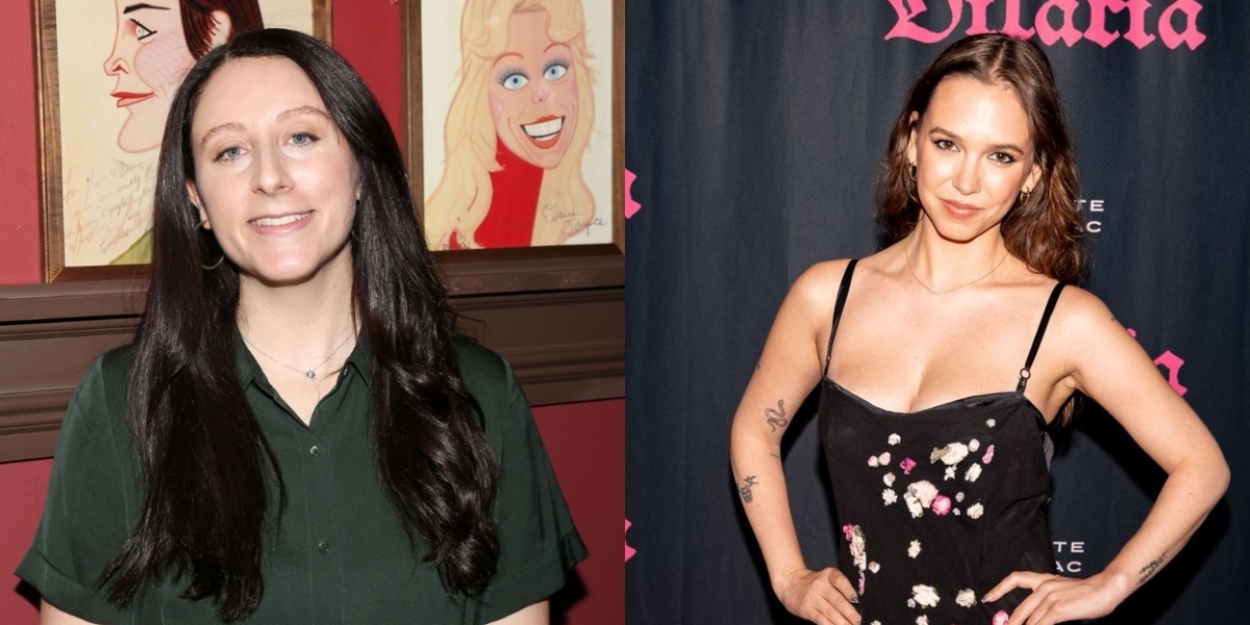
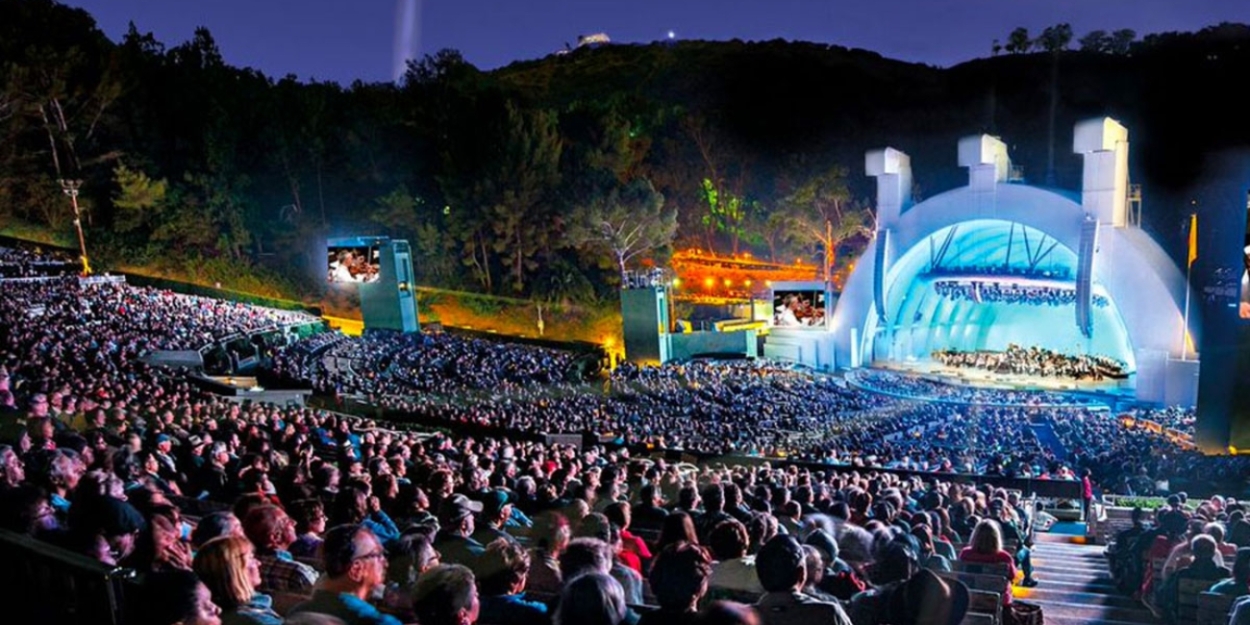
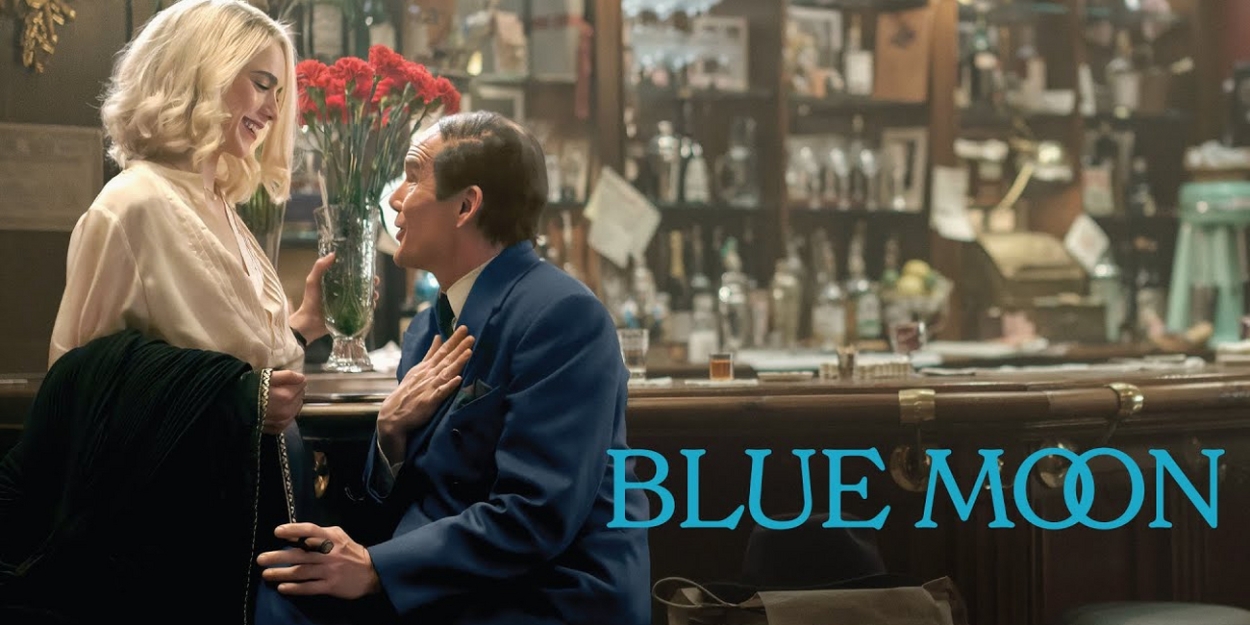
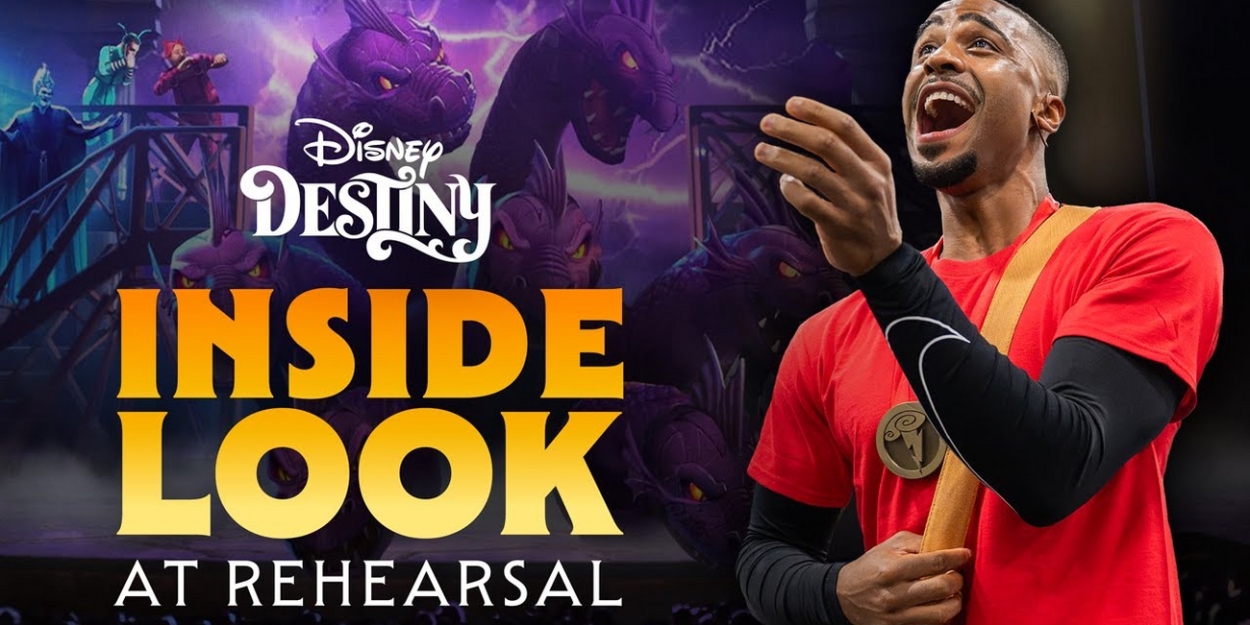
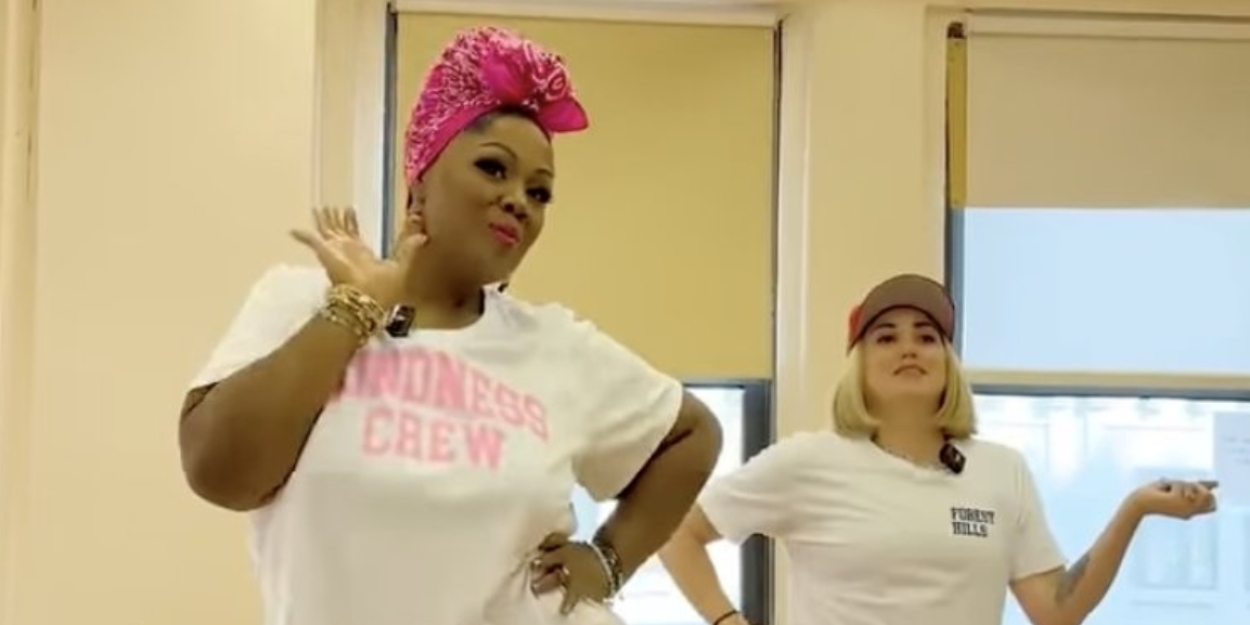
.jpg)

